Hello everyone and welcome back to LLP, the let's play with footnotes! 
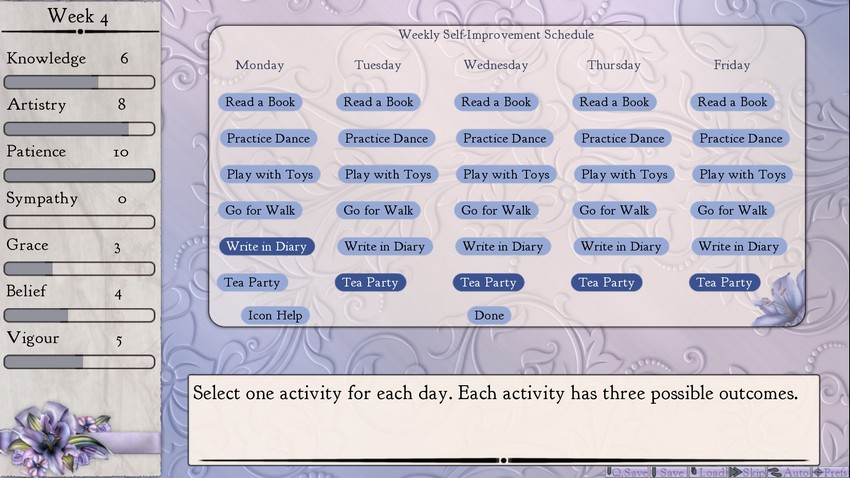
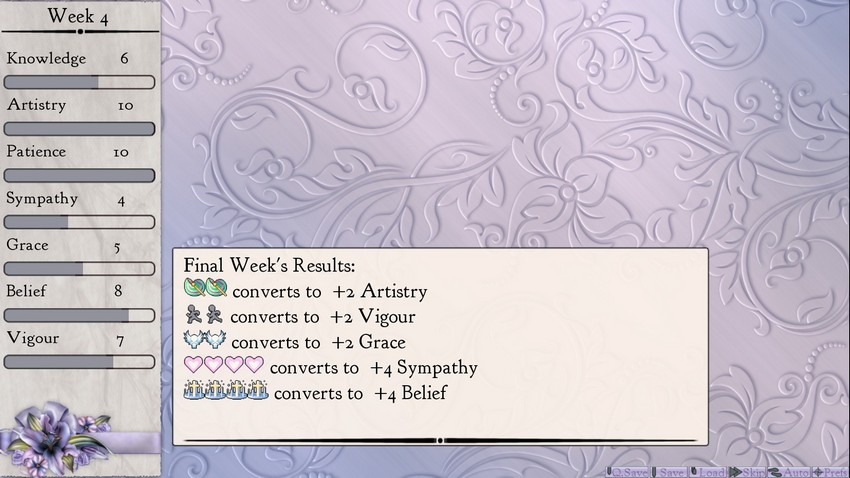 That's a lot of tea parties! For anyone wondering how I do this, and how tea party ended up with 4/5ths of the slots, I base it on percentages. Tea parties had 67% percent of the vote, writing in our diary 25%, and then dancing and playing with toys 4% each. Each slot is worth 20%-- so tea party automatically got 3 slots and writing 1, which left them with a remaining 7% and 5% of votes, respectively. Tea party, with the highest remaining percentage, got the last slot. I doubt anyone cares all that much, but I'm the kind of nerd who really likes spreadsheets and things.
That's a lot of tea parties! For anyone wondering how I do this, and how tea party ended up with 4/5ths of the slots, I base it on percentages. Tea parties had 67% percent of the vote, writing in our diary 25%, and then dancing and playing with toys 4% each. Each slot is worth 20%-- so tea party automatically got 3 slots and writing 1, which left them with a remaining 7% and 5% of votes, respectively. Tea party, with the highest remaining percentage, got the last slot. I doubt anyone cares all that much, but I'm the kind of nerd who really likes spreadsheets and things.
As for the weekend, it was a close race between Ermengarde and Mariette, but Ermen won by a single vote.
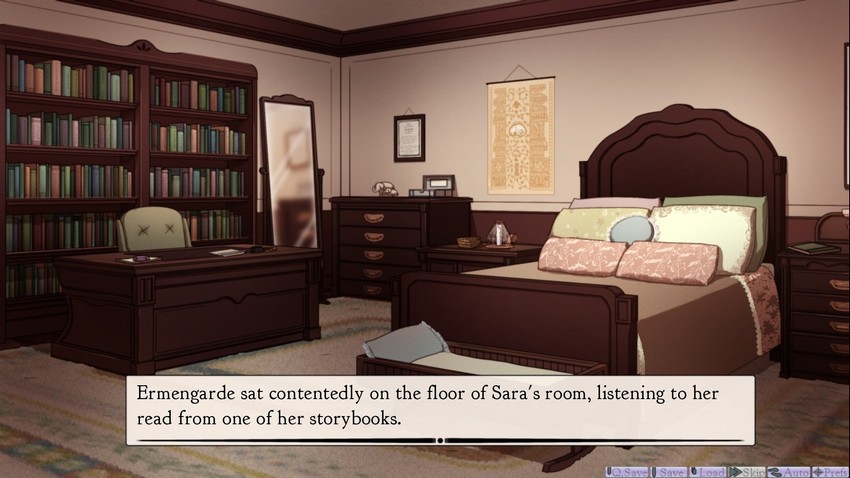

And then he offered to take her away to his father's court, where he would make her his bride.

The maiden adored the prince, whose company had charmed her for so many hours, but she could not bear to leave her sisters without first telling them farewell. She bade the prince to leave and return again the next day to the place in the woods where they had met.

Sara did not read the words exactly as they were written, but put her own little touches upon the story to make it turn out the way that she preferred. It was not quite the same as telling her own stories, but Ermengarde still seemed nervous at the idea of stories that had not come from books at all. It was a first step.

Once he had gone, she rushed back to her home to take up her work at the wheel, planning to spin twice as fast to cover for her absence.

But when she sat down at the wheel, she was dismayed to find that her magic gold thread had lost all its brightness. Her heart beat fast and she wept bitterly, for she remembered her mother's warning and knew not what misfortune might now befall her. She was so afraid that she would be punished for what she had done that she ran away without telling anyone what had happened, not even her beloved sisters. She ran through the woods, looking for her prince, but he was on horseback and long since gone.
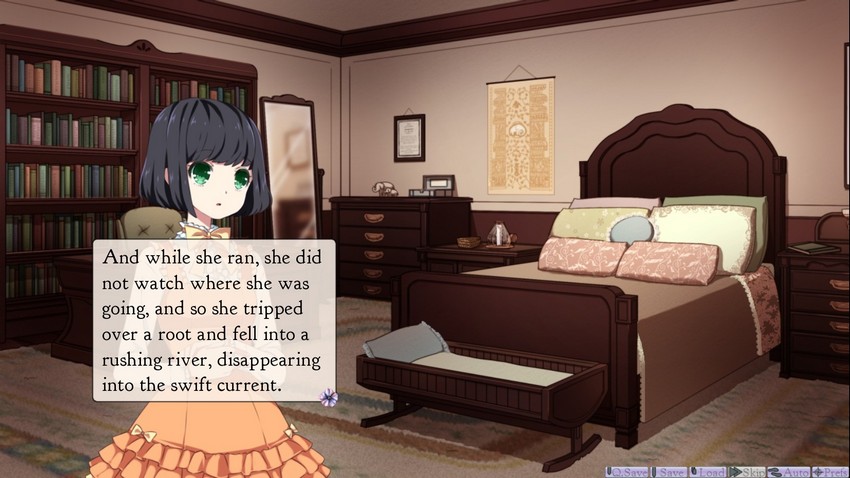

Thus the misfortune was complete.

She drowned!

Not quite.

Sara continued her story — how the maiden was transformed into a golden water-lily who sang in her sorrow, and how she was at last restored to life by the love of her sisters. Ermengarde sighed in contentment.

When I hear stories in your voice, I can almost see them happen. You are much better than books.

But what about the prince? Doesn't he marry her in the end?

He rode over the bridge by the river and heard her singing, but he didn't do anything to save her.

It was her sisters who loved her enough to look for her when she was lost.
Sara's story is a rendition of The Water-Lily, the Gold-Spinners (or simply The Gold-Spinners), an Estonian fairy tale most famously collected in The Blue Fairy Book by Andrew Lang. This took a few attempts at keywords for me to find, and I also went to the effort of reading through the two English versions of the story on Wikipedia. Like many fairy tales, The Gold-Spinners is full of talking birds, people transforming into things, and women sitting around waiting for a dingbat prince to pull his thumbs out of his ass. I don't think a single woman other than the antagonist takes any action of her own volition in the whole story, and it's ludicrous. Sara's version is much, much better.
There is a teeny, tiny hiccup in that The Blue Fairy book wasn't published until 1889, and is the first non-Estonian publication of the story as far as I can find, wheras I've taken A Little Princess (and therefore LLP) to be set in 1888.(1) Your continuity errors(2) will not escape me, Hanako Games! 
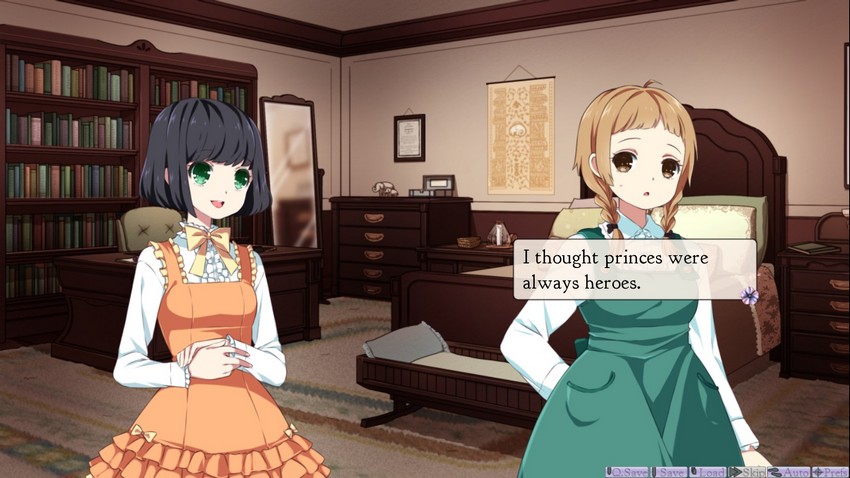

Anyone could be a hero, in the right circumstances.

I don't think I could.

Ermengarde looked around Sara's room, decorated as it was with the best of at least three countries: dependable England, refined France, and exotic India.

Do you miss being in India, Sara?

Yes, of course. It was my home, and I was happy there.

I had my house, and my pets, and my Ayah, and the skies were never foggy and grey like they are here in London. I loved living there. But I love it most of all because it is where my Papa will be.

Ermengarde saw Sara's face suddenly change. A cloud seemed to pass over it and put out the light in her shining eyes.

Have you a — a pain?

There was a moment of silence, in which Ermengarde worried that she might have spoken out of turn. But at last, Sara answered.
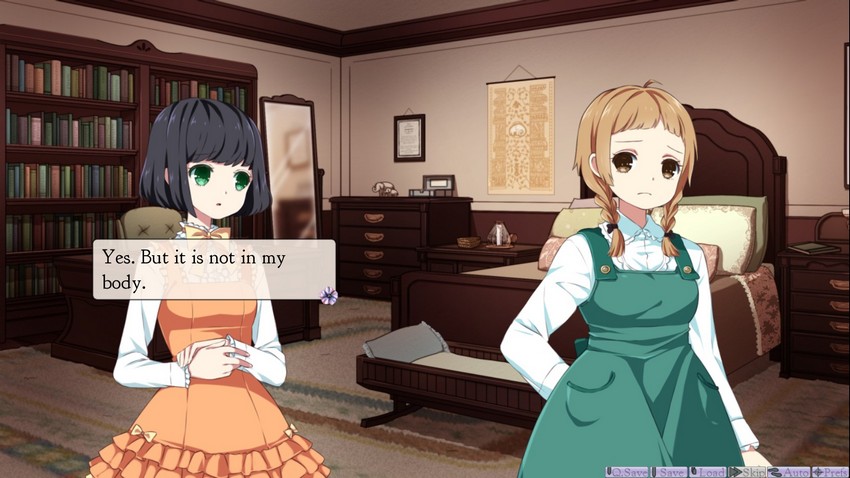

Her voice was low, and somewhat unsteady.

Do you love your father more than anything else in all the whole world?

Ermengarde's mouth fell open a little. She knew that it would not be correct for a respectable child at a select seminary to say that she did not adore her father; could not imagine being even so much as
fond of him.

I — I scarcely ever see him.

In fact, she did her very best to avoid being left alone in his company for more than a few minutes. It was not a proper feeling for a daughter, perhaps, and it was clearly not something that Sara would understand. Ermengarde was, indeed, greatly embarrassed.

He is always in the library— reading things.

There was a wealth of information in that statement, if Sara had been inclined to decipher it, but she was too preoccupied with her own feelings.

I love mine more than all the world ten times over. That is what my pain is. He has gone away.

She put her head quietly down on her little, huddled-up knees, and sat very still for a few minutes. Ermengarde had an idea that if she had been like any other little girl, Sara might have suddenly burst out sobbing and crying. But she did not. Her short, black locks tumbled about her ears, and she sat still. Then she spoke without lifting her head.
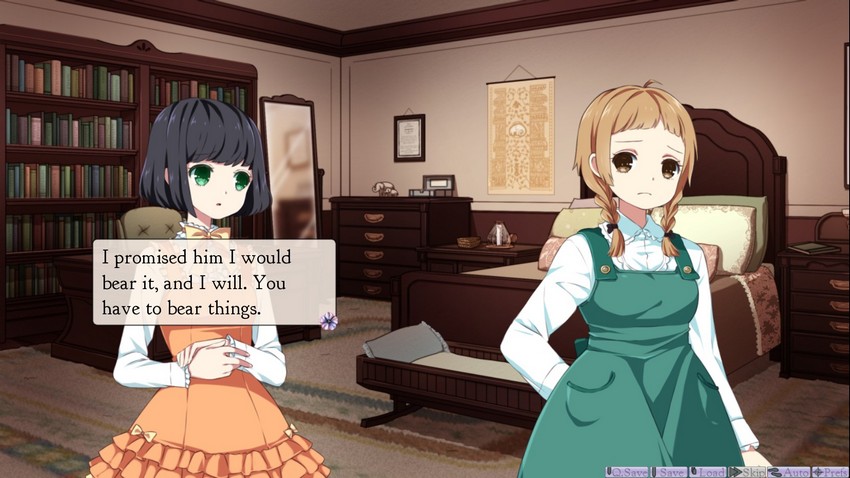

Papa is a soldier, and think of what soldiers bear! If there was a war he would have to bear marching and thirstiness and, perhaps, deep wounds. And he would never say a word — not one word.

Ermengarde could only gaze at Sara, but she felt that she was beginning to adore her. She was so wonderful and different from anyone else. Presently, Sara lifted her face and shook back her black locks, with a queer little smile.

If I go on talking and talking, I shall bear it better. You don't forget, but you bear it better.

I — I will talk to you as much as you like, if it helps you.
 Aw. Well, it's good to know that Sara is able to cope when she's feeling homesick, and that Ermengarde is here and happy to support her. Let's move on to the next scene.
Aw. Well, it's good to know that Sara is able to cope when she's feeling homesick, and that Ermengarde is here and happy to support her. Let's move on to the next scene.
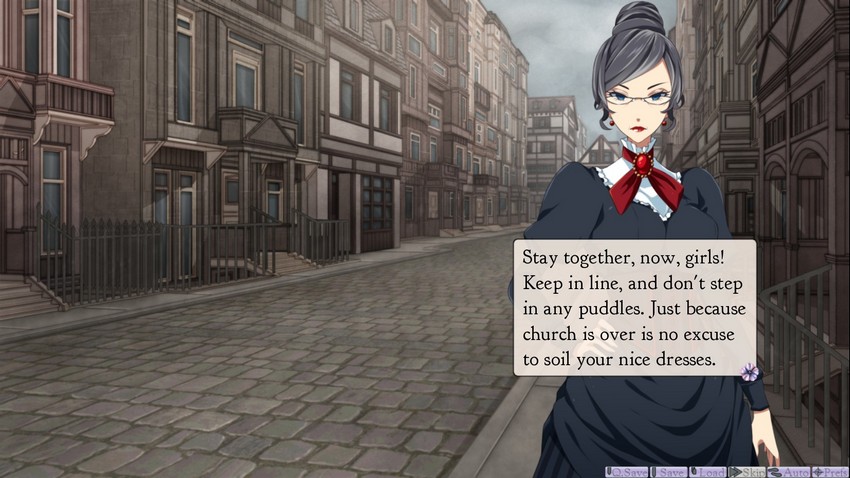

The air smells very different when it has rained.

It still smells like London. There are too many people and chimneys and horses. I keep lavender sachets in my room so that I can smell the gardens, even when I'm away from home.

They — they're not much. My Aunt Eliza sent me the flowers. I stitched them myself.

We have lavender in India too.

Oh! But — isn't lavender an English flower? I thought everything in India would be... saffron, and spices.
 Looking it up, no. While the most common species of lavender plant is called "English Lavender", it is actually native to the mediterranean, as all species seem to be. But why let facts get in the way of ethnocentric nomenclature?
Looking it up, no. While the most common species of lavender plant is called "English Lavender", it is actually native to the mediterranean, as all species seem to be. But why let facts get in the way of ethnocentric nomenclature?
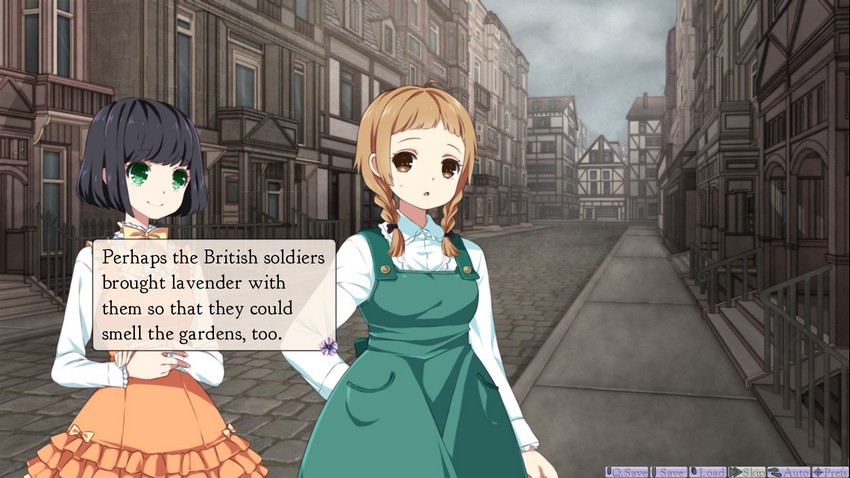

Do you think that soldiers could be homesick?

Of course. Soldiers must be very brave, and bear all sorts of dangers and hardships, but that doesn't mean that they don't have feelings.

And we must be brave, too, even when we are far from the homes — and the people — that we love.

A carriage passed alongside Miss Minchin's students as they walked, seemingly packed to the walls with children. Eight of them, siblings all, and such a giggling mass of blond curls and rosy cheeks as Sara had never seen before. Their merriment was infectious, and Sara found that a smile had come unexpectedly to her face.
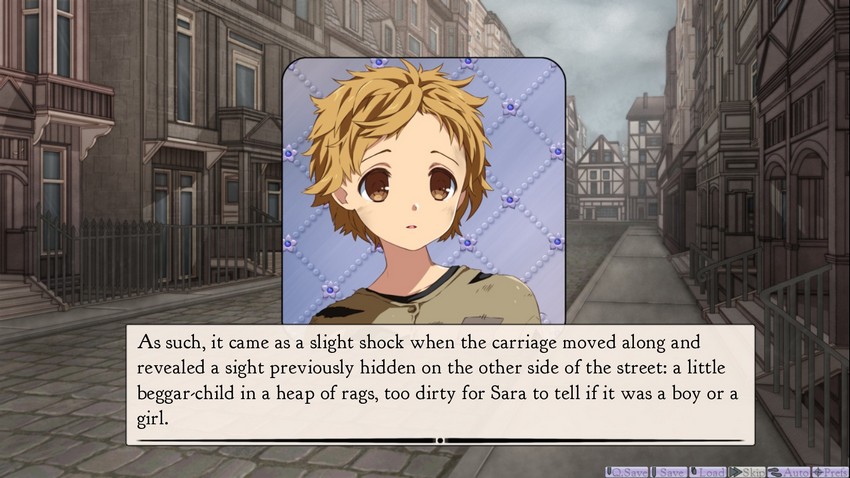

Pricked by the sight, Sara stepped out of line and carried her little coin-purse to the child.

Sara, wait! Where are you going?

Here is a Sixpence; go and buy yourself something warm.

She hurried back into formation, but not before her steps were noticed by Miss Minchin.
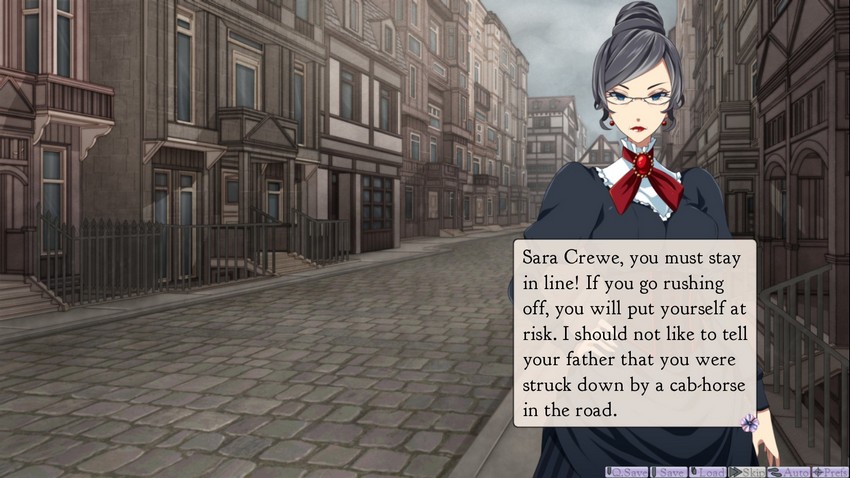

I only wished to —

Generosity is a virtue, but it is not wise or safe to come in close contact with creatures of the streets. You must be careful to clean yourself thoroughly when we return to the school.

Yes, Miss Minchin.

Sara looked back, but the beggar-child had already disappeared from sight.

(How strange, that one child should be hungry and dirty on the streets, while another rides in a fine carriage and knows nothing but joy and laughter. And all of these things happen quite by accident, because of the way that we are born.)
This thought would have been somewhat subversive in the Victorian era. Like now, there was a pervasive belief that if people were poor, even desperately so, it was their own fault and they could work their way to a comfortable life if they just tried. It's a convenient and attractive way of thinking, and one that never seems to go away no matter how much research proves it false.
Being poor at the time was borderline a criminal offense. The industrial revolution increased the urban population dramatically, leaving the poor more destitute and numerous than ever before seen. In response to this, welfare requirements were actually made stricter, almost prohibitively so. Any able-bodied person who wanted to receive aid was turned away and instead sent to a workhouse-- a prison-like factory where they were expected to live and work. Conditions were made intentionally worse to prevent people from "taking advantage". 
By the late 19th century things had begun to improve in response to riots and calls for reform, but things were still worse for most impoverished people than before the industrial revolution had begun.
Sorry for the history lesson, but exactly one person said they enjoyed it, and I have taken that as an excuse to go off. Let's move on to the next scene, in which Lavinia continues her crusade to get the entire thread to hate her.
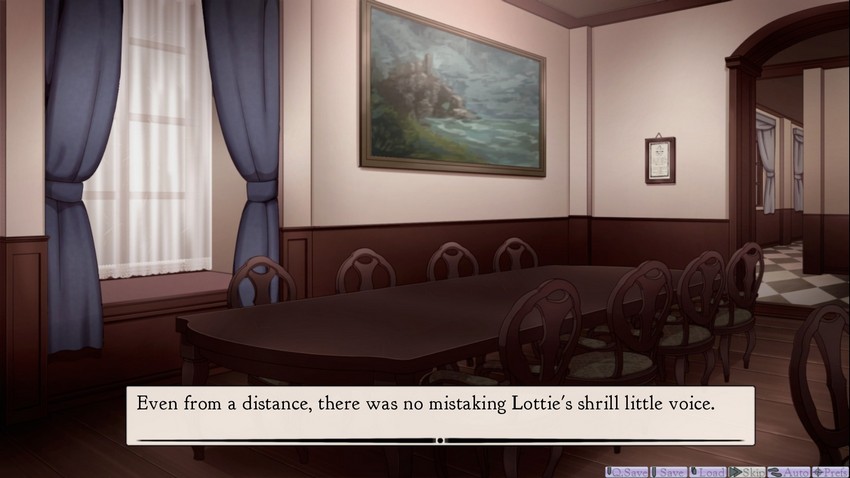
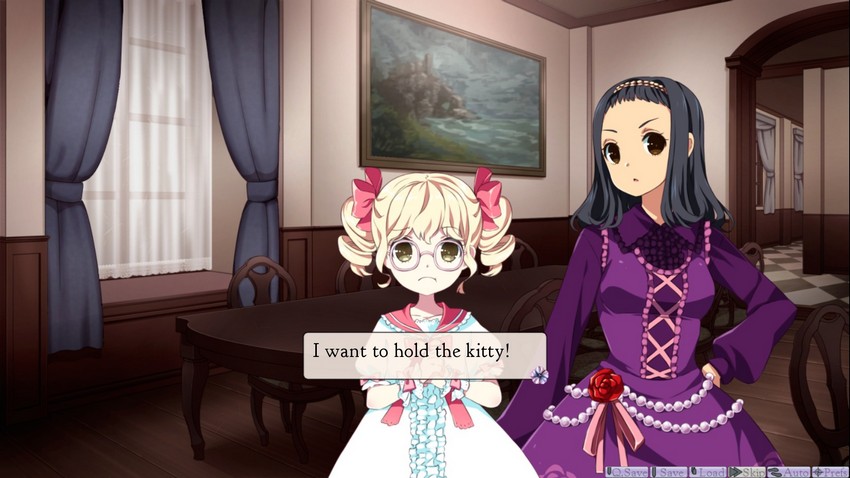

Don't be ridiculous.

Sara came into the room to find Lavinia perched primly in a window seat, looking down at the smaller child, whose lip was beginning to wobble.

Tybalt is in my lap, and he is perfectly content there. Listen; you can hear him purr. That is because
I am stroking him, and he likes me.

I
want to hold the kitty.

Keep your sticky little fingers away from his fur.

Lottie's brow furrowed in fierce determination. Ignoring Lavinia's commands, she reached out to pick up the cat.
This is not going to end well.
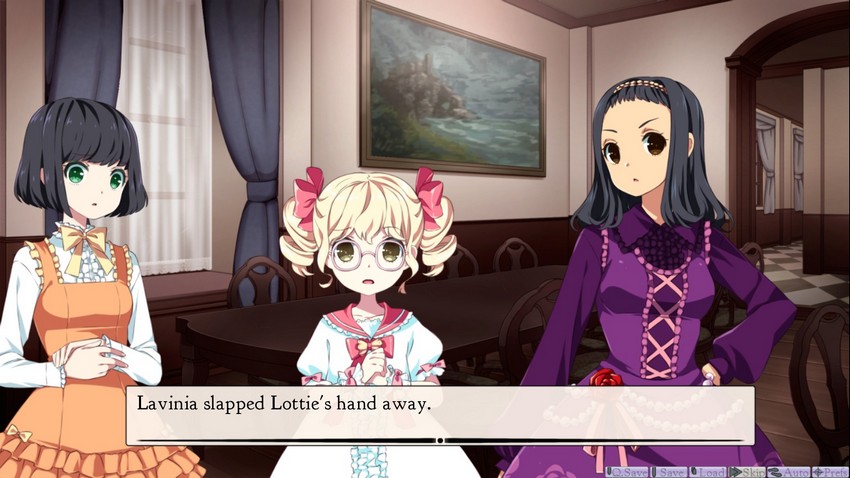

The sudden movement jostled Tybalt out of his comfortable doze. With a parting squeeze of his claws, he leapt from Lavinia's legs and hurried out of the room.

Now look what you’ve done, you little brat! He scratched me! And if he's damaged my dress —

It scratched you because you're
mean. You wouldn’t even let me touch it! It isn't fair, it isn't!

A cat is not a ragdoll. You cannot snatch and tug at it as you please, or it will bite your hand. Is that too difficult for a child of eight to understand?
Yeah, so uh, Lottie is eight, apparently. Meaning my age estimate of five was quite considerably off the mark. To be fair, from what we've seen of her so far she certainly does act like a toddler, and not like an eight year old. Not that she deserved to be slapped, even just on the hand, by a girl almost twice her age, even so.
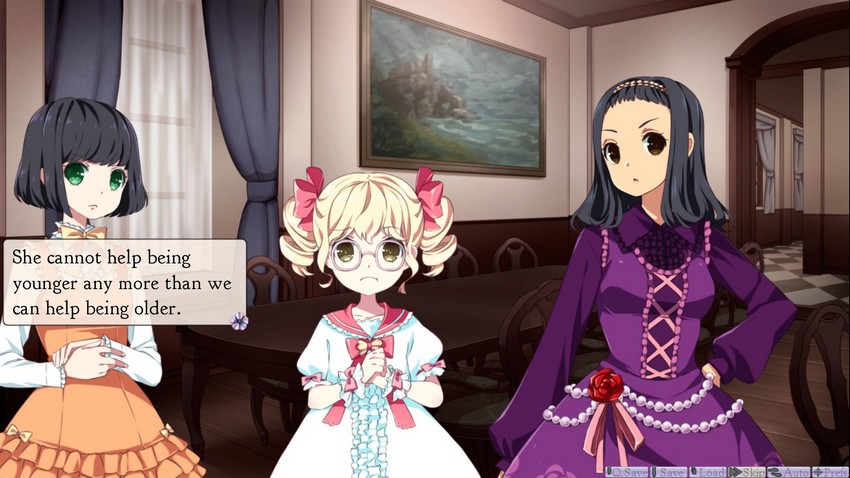

If she is eight, she is eight, but she will be nine the next year, and ten the year after that, and in twelve years she will be twenty, and that is quite grand.

Dear me, how we can calculate!

I don't
want to be twenty.

You will be when you are, and you won’t be while you aren't, so there is no reason to want or not to want.

No! No! No!

Be quiet, or I shall slap your face!

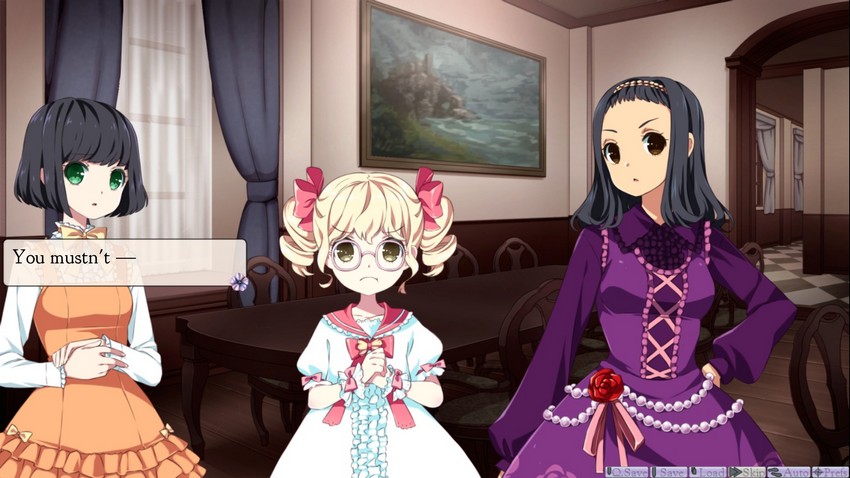

Lottie looked into Lavinia's blazing eyes, then ran from the room, wailing at the unfairness of it all.

You ought not to baby her, Sara. She must learn that she can't have everything her own way.

Privately, Sara thought that Lottie was not the only student at the school who might need to learn that lesson.
 Something tells me that Lavinia may be the very last route this thread explores.
Something tells me that Lavinia may be the very last route this thread explores.
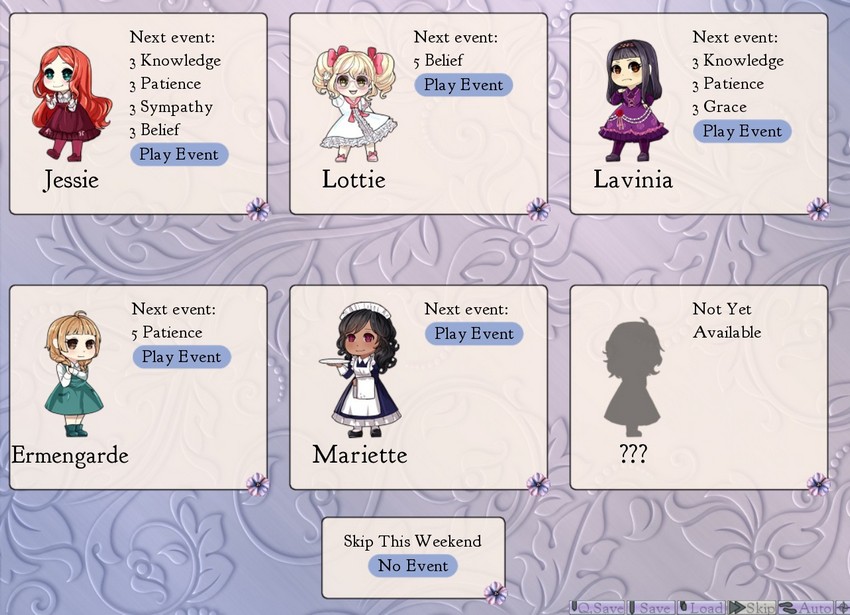 Still no sign of our final route. Our belief is down quite a bit after Ermengarde's scene using up most of it, so we'll have to find +1 belief for Jessie's scene and +3 for Lottie's, if we choose either of those. Otherwise we meet all requirements. Remember to vote for activities and a scene, and if you please bold your votes to make them easier to count, I would appreciate it. see you next time!
Still no sign of our final route. Our belief is down quite a bit after Ermengarde's scene using up most of it, so we'll have to find +1 belief for Jessie's scene and +3 for Lottie's, if we choose either of those. Otherwise we meet all requirements. Remember to vote for activities and a scene, and if you please bold your votes to make them easier to count, I would appreciate it. see you next time!

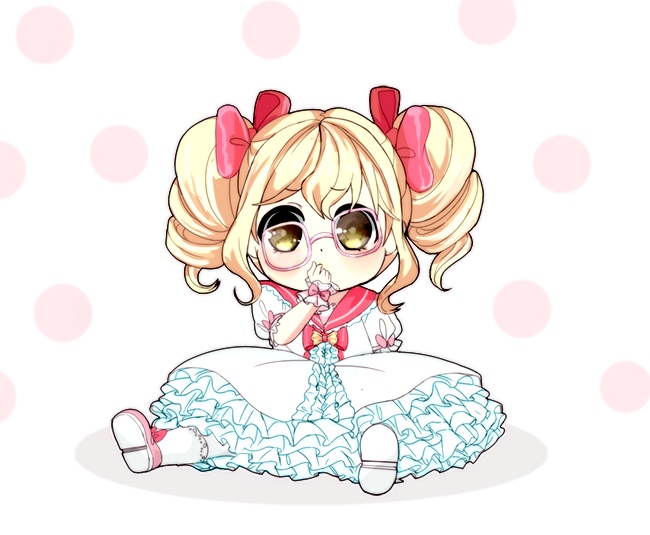
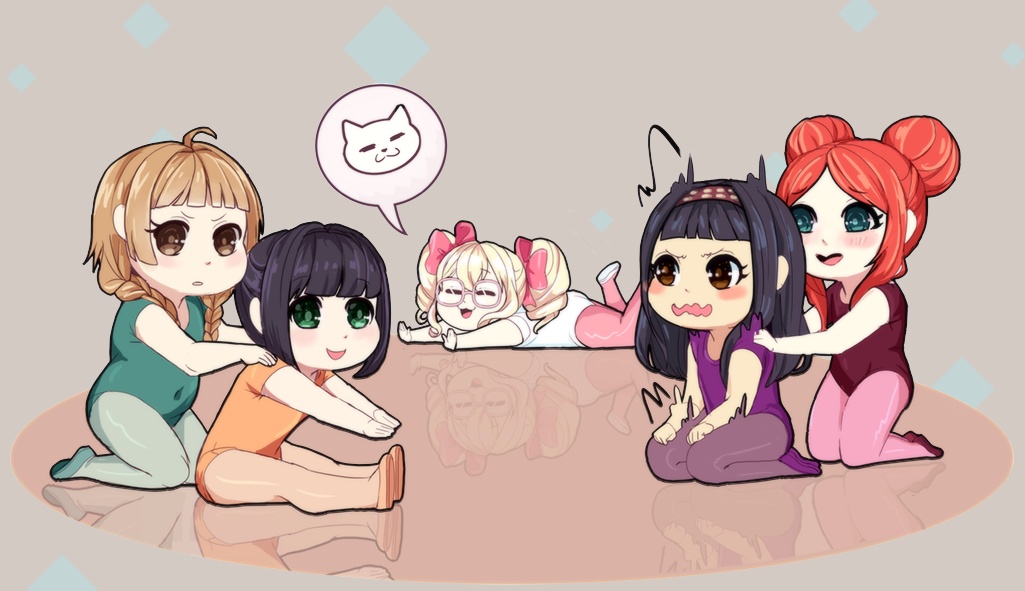
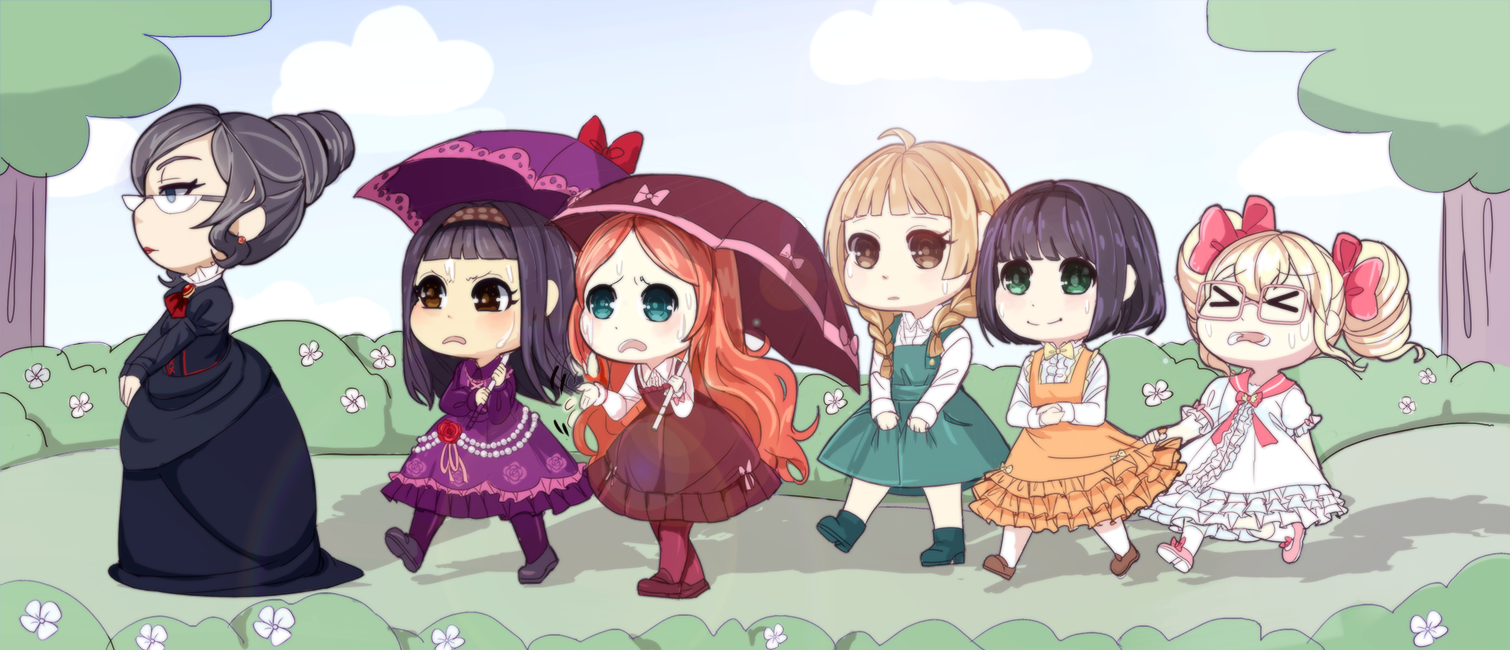

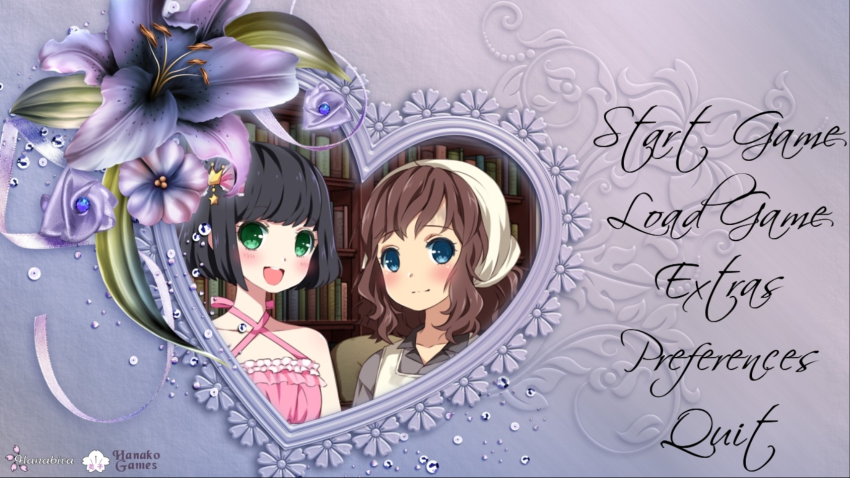
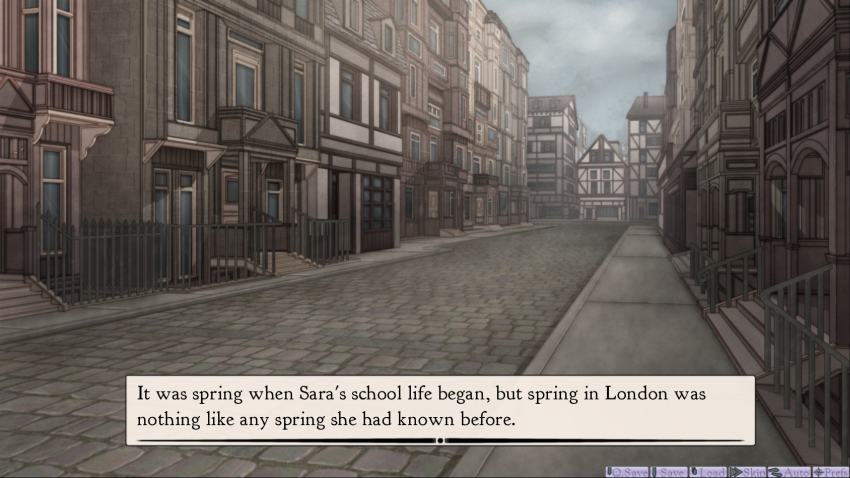
 The morning sun was not enough to lift the chill from the stony streets, and the mist off the river blended with the smoke of countless chimneys to form a thick yellow fog. In such weather, the gaslamps burned night and day, flickering like stars to guide the horse-drawn 'ships’ to their destinations. But the ship that had carried her across the ocean was now a thing of the past. Here, then, was Sara's new home. It was a big, dull, brick house, exactly like all the others in its row, except that on the front door there shone a brass plate which was engraved in black letters:
The morning sun was not enough to lift the chill from the stony streets, and the mist off the river blended with the smoke of countless chimneys to form a thick yellow fog. In such weather, the gaslamps burned night and day, flickering like stars to guide the horse-drawn 'ships’ to their destinations. But the ship that had carried her across the ocean was now a thing of the past. Here, then, was Sara's new home. It was a big, dull, brick house, exactly like all the others in its row, except that on the front door there shone a brass plate which was engraved in black letters: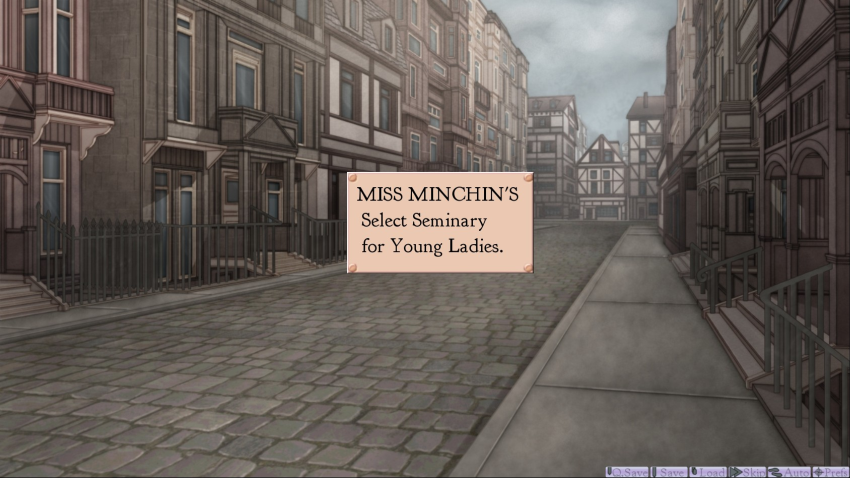
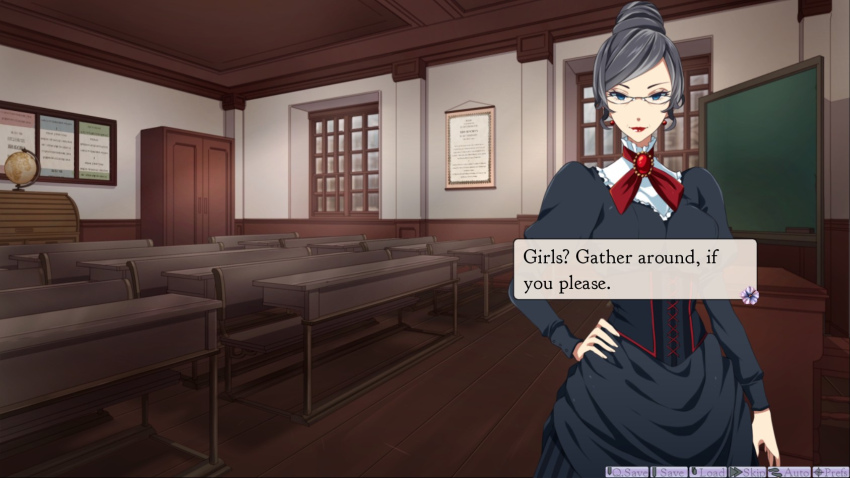
 Come, come, hurry up. We have a new pupil who will be joining us, starting today. Her name is Sara Crewe, and she is only recently arrived in England, so you must all make her feel welcome.
Come, come, hurry up. We have a new pupil who will be joining us, starting today. Her name is Sara Crewe, and she is only recently arrived in England, so you must all make her feel welcome. How do you do?
How do you do?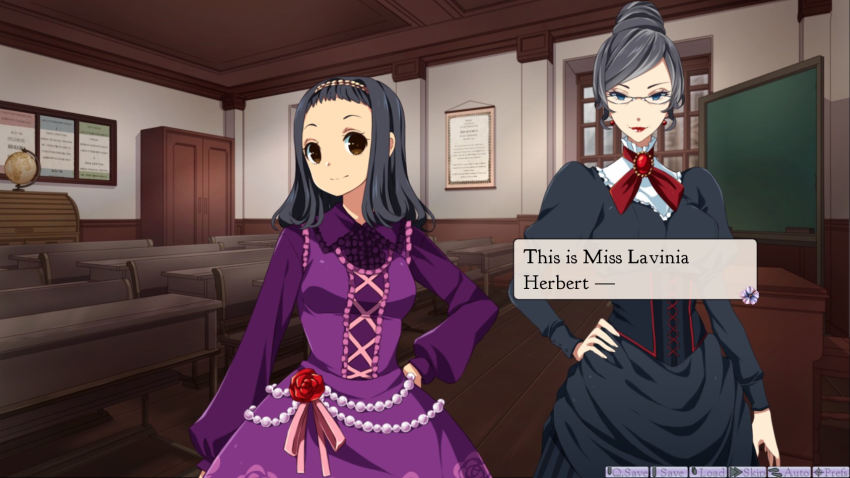
 Charmed.
Charmed.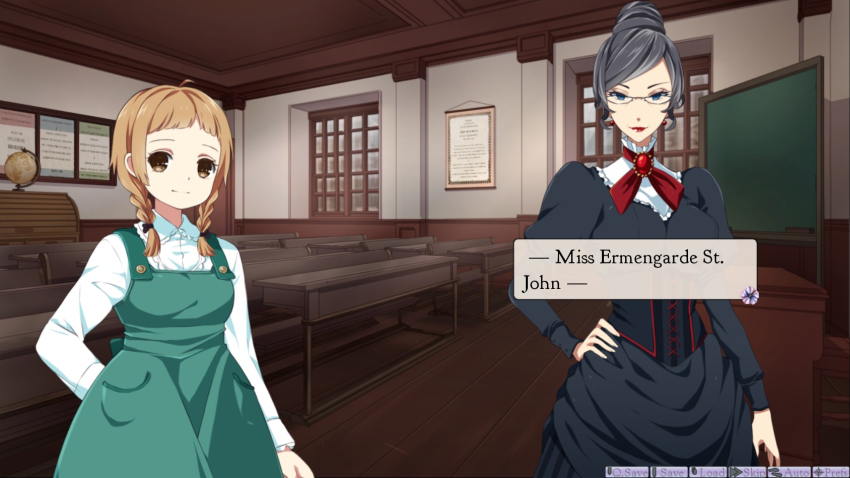
 Ah?
Ah?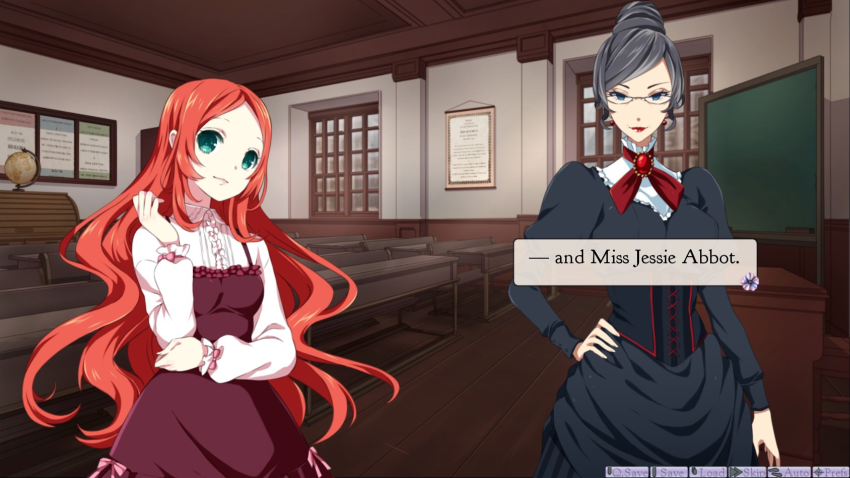
 We’re very pleased to meet you.
We’re very pleased to meet you.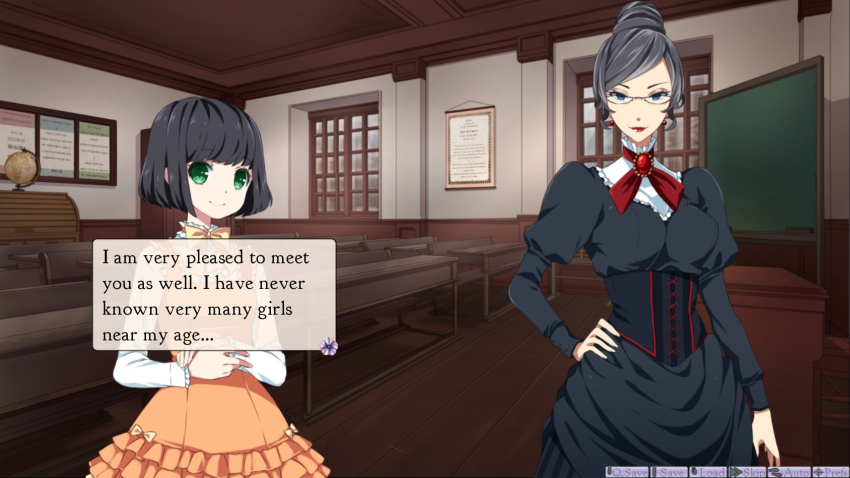
 ...nor any other age.
...nor any other age.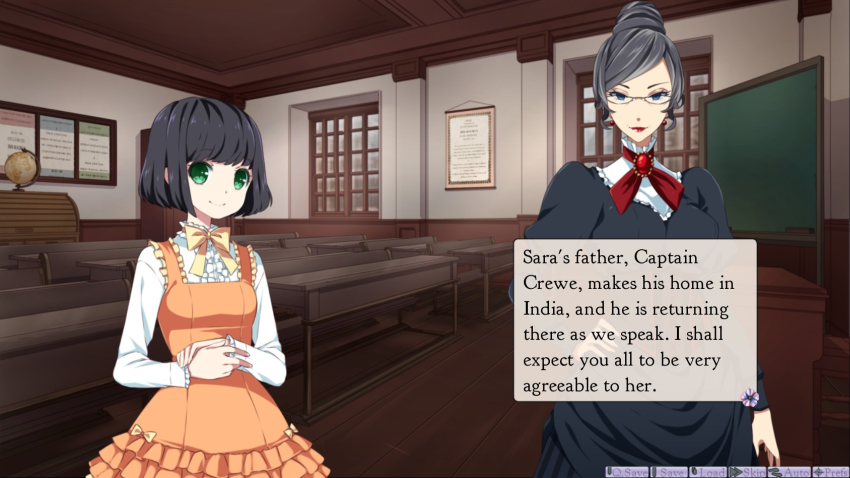
 I am not certain how to become a 'credit’, but — I do wish to learn.
I am not certain how to become a 'credit’, but — I do wish to learn. Take your seat, I said.
Take your seat, I said.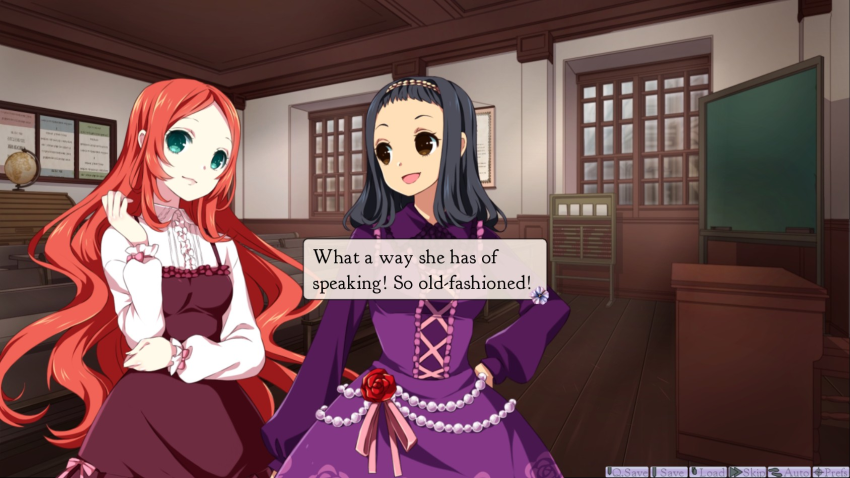
 Hush!
Hush! And her eyes are such a queer colour. A funny-looking child, to be sure.
And her eyes are such a queer colour. A funny-looking child, to be sure.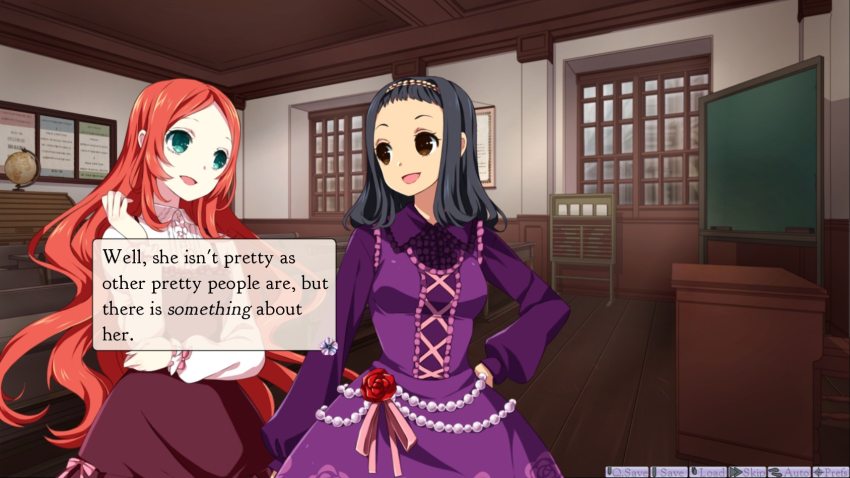
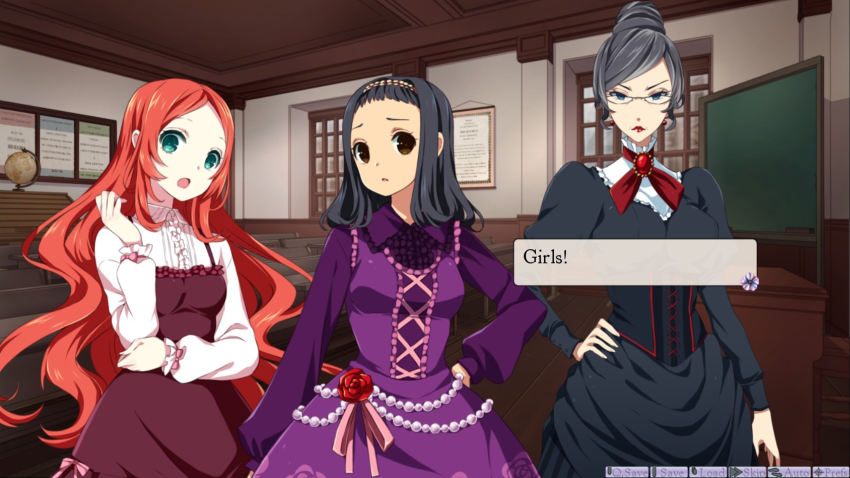

 Yes, Miss Minchin!
Yes, Miss Minchin!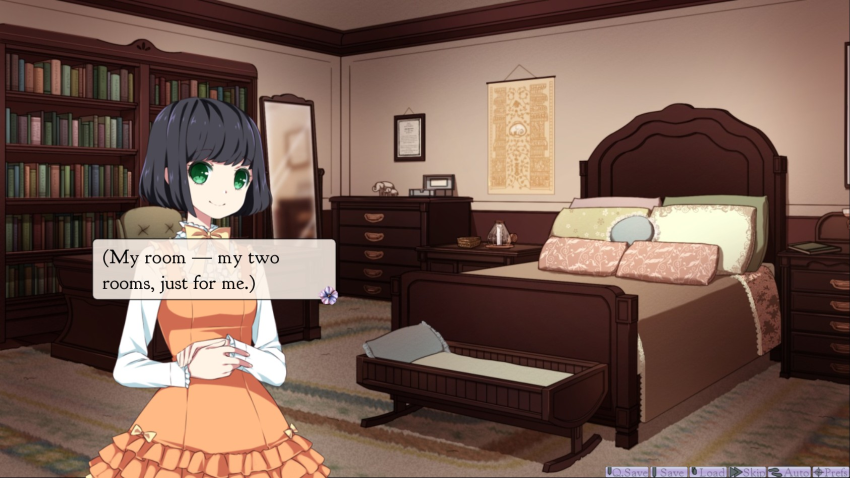
 (My Papa has filled them with beautiful things. Books, velvet cushions, lace dresses, a porcelain tea set... hats with great feathers that bob on them, even a tiger rug to remind me of India... It looks like a room that would belong to the daughter of a rajah — an Indian princess.)
(My Papa has filled them with beautiful things. Books, velvet cushions, lace dresses, a porcelain tea set... hats with great feathers that bob on them, even a tiger rug to remind me of India... It looks like a room that would belong to the daughter of a rajah — an Indian princess.) (I only wish that this room also contained my Papa.)
(I only wish that this room also contained my Papa.)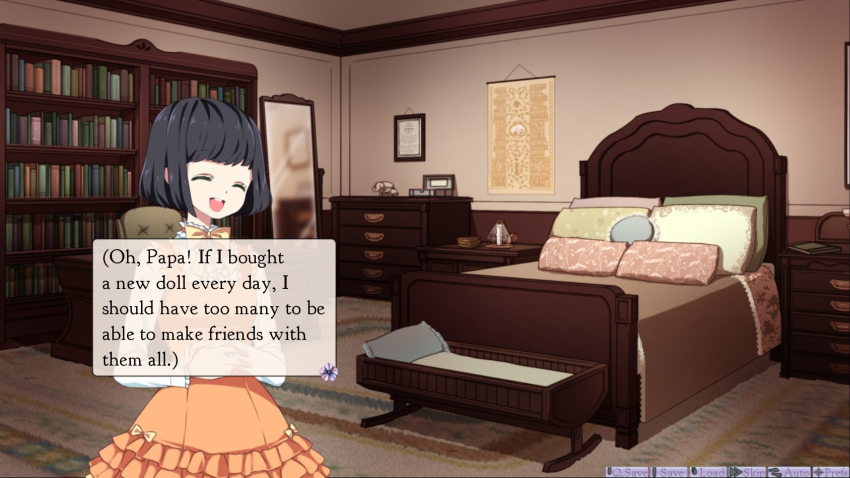
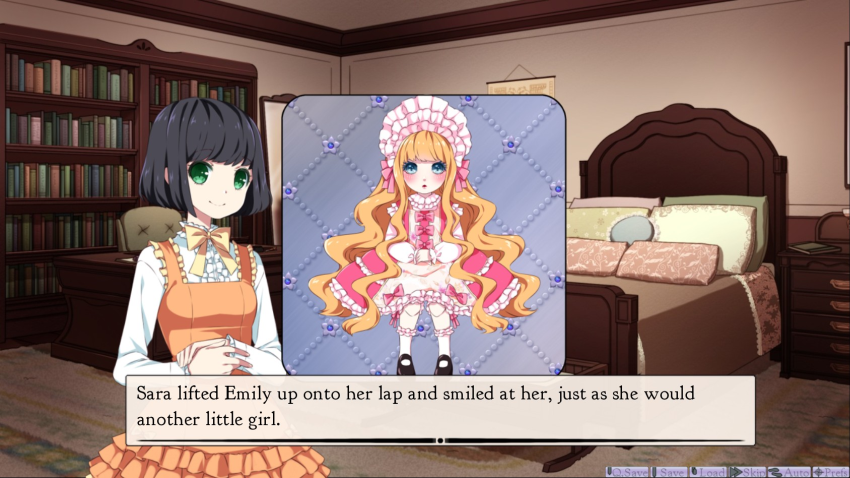
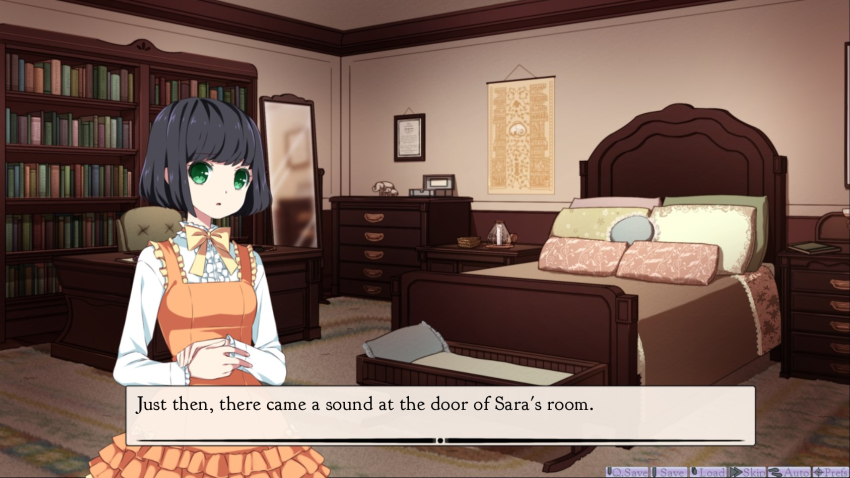
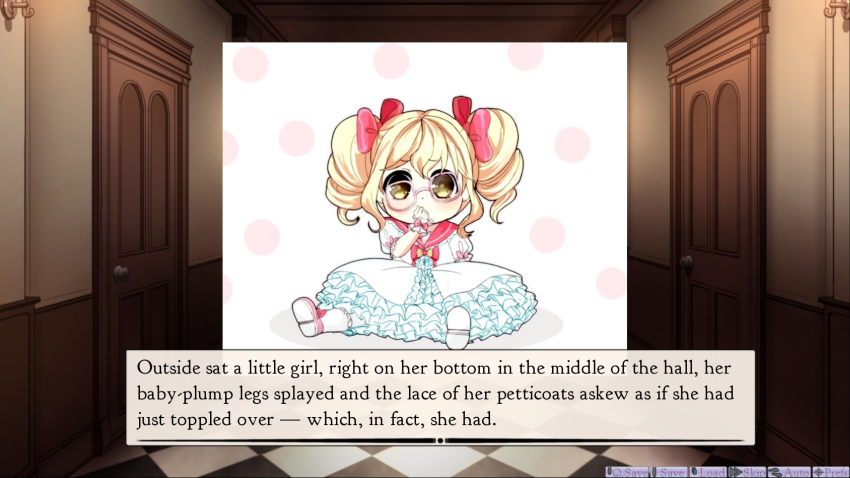
 ...’m Lottie.
...’m Lottie.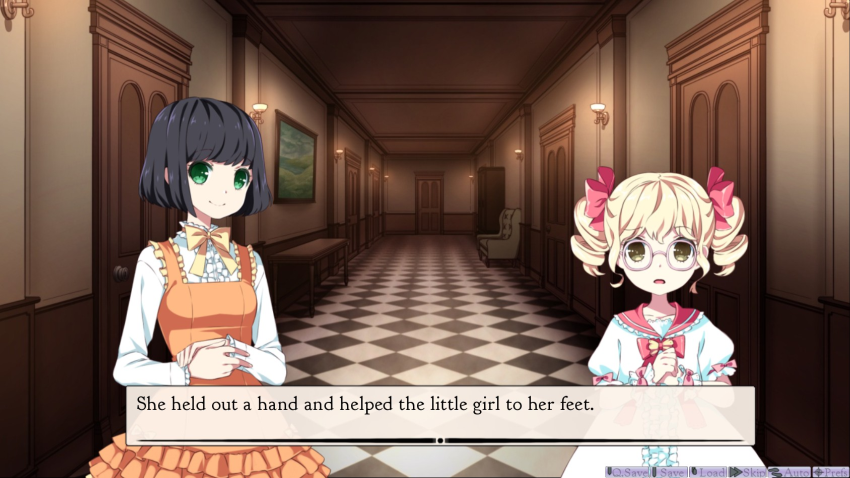
 Can I — Might I — May I look at your doll?
Can I — Might I — May I look at your doll? Of course you may. Come and visit me in my room, and we can have tea together. My Papa left me a beautiful tea set, with lilies painted on it.
Of course you may. Come and visit me in my room, and we can have tea together. My Papa left me a beautiful tea set, with lilies painted on it. I want to see!
I want to see!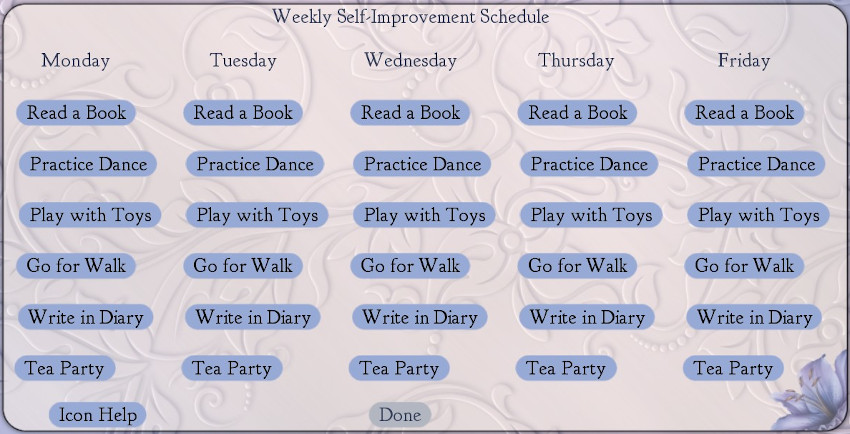

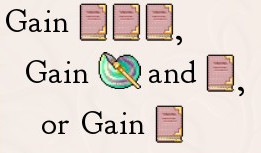
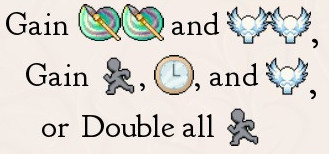
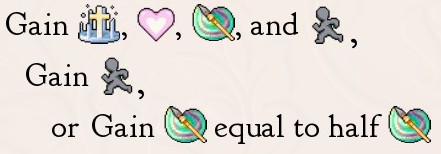
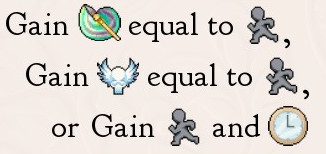
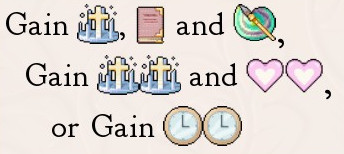
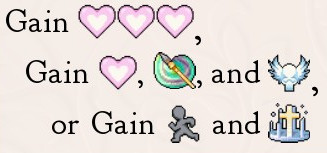
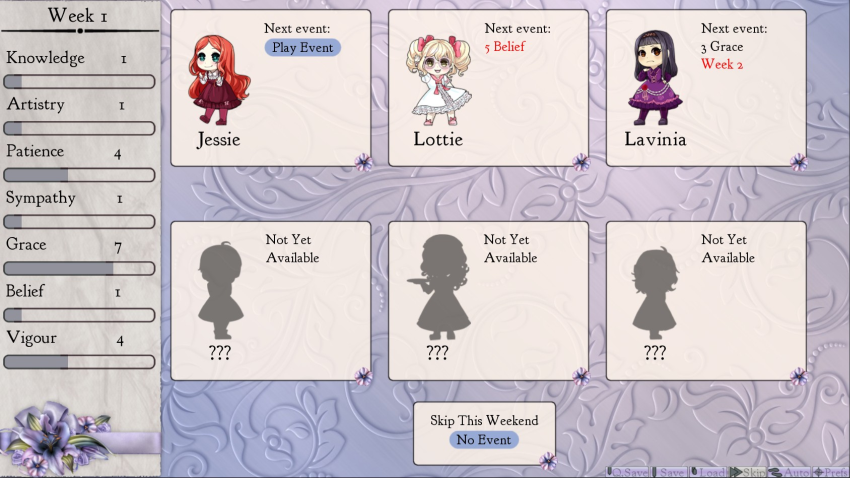
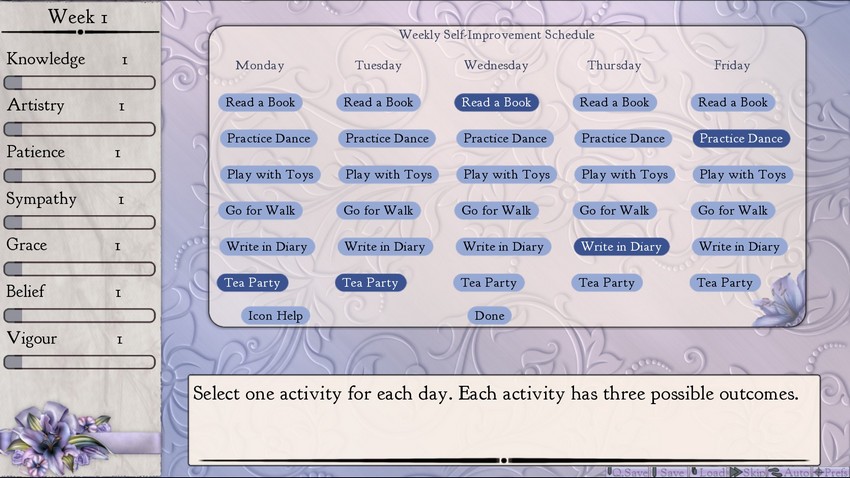
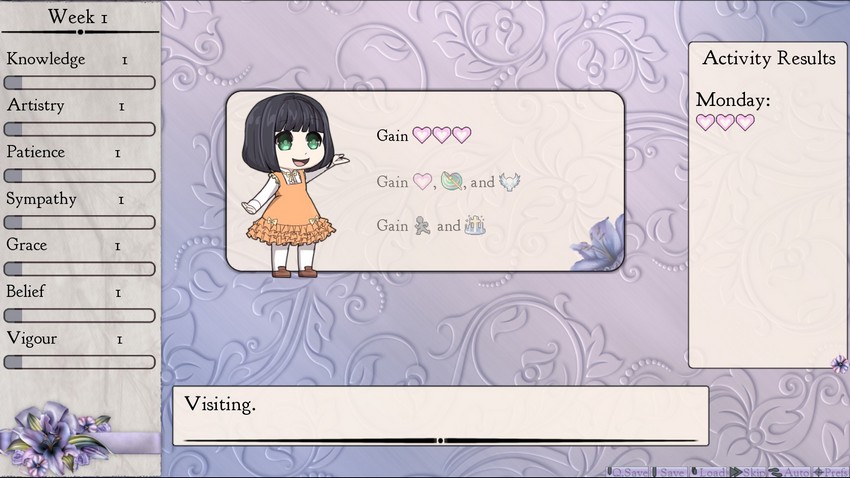
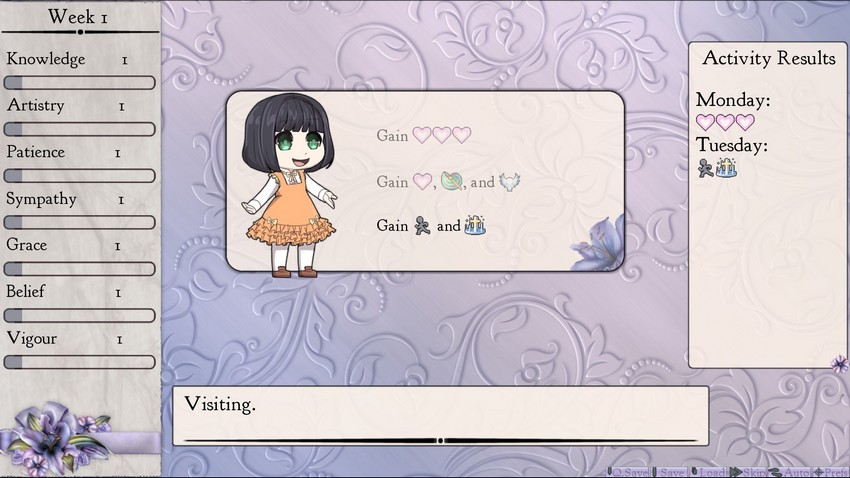
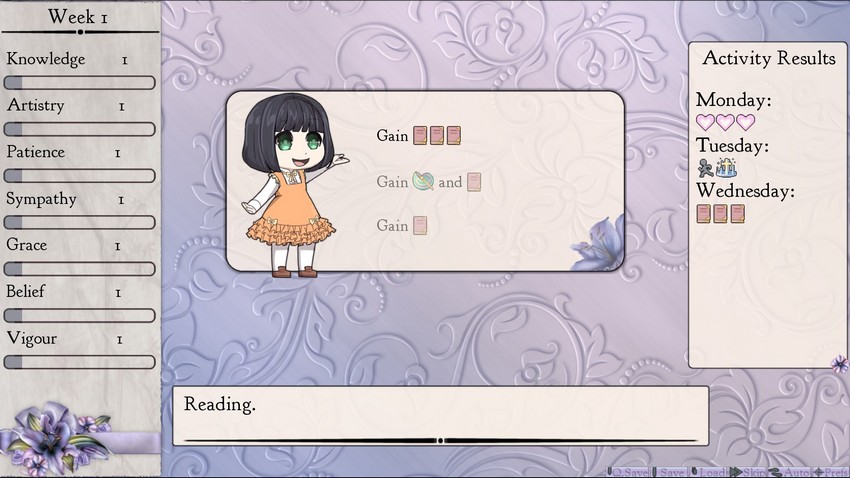
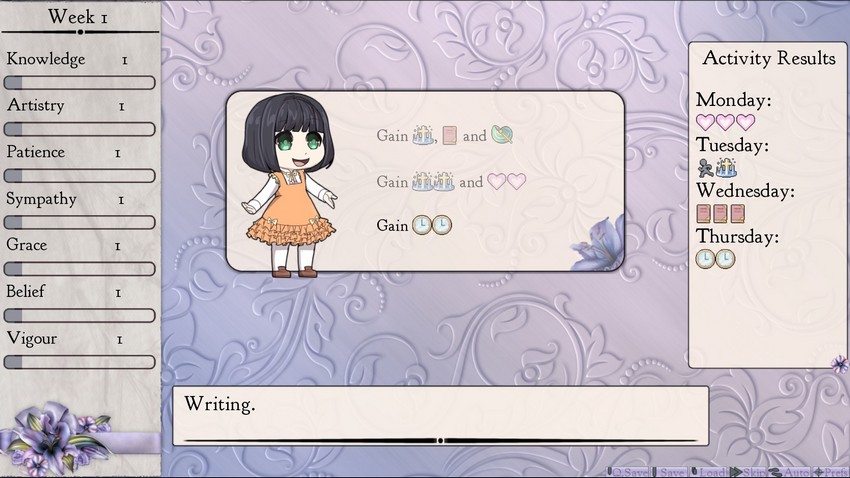
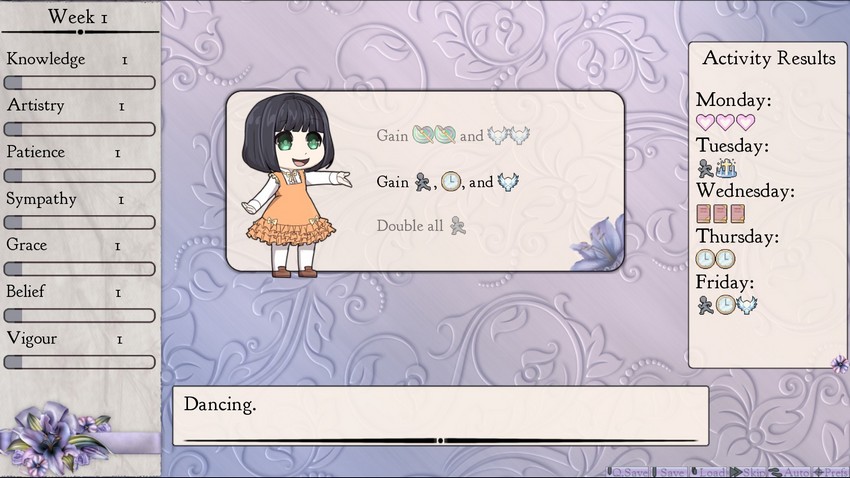
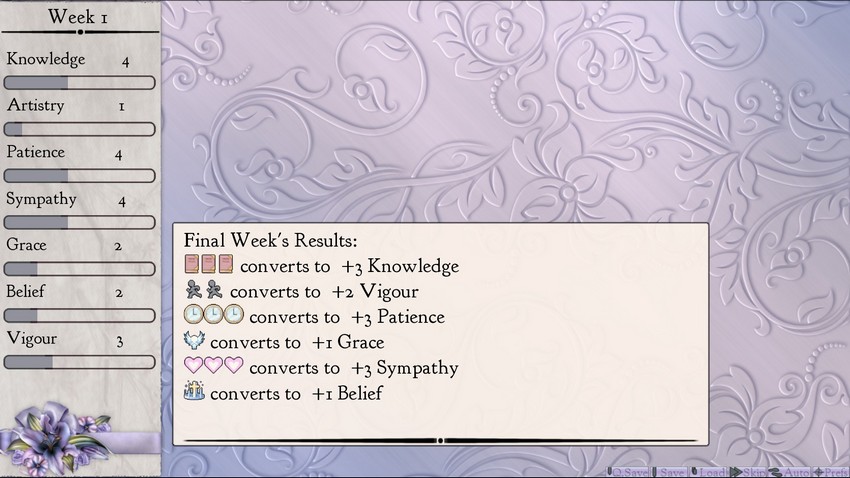
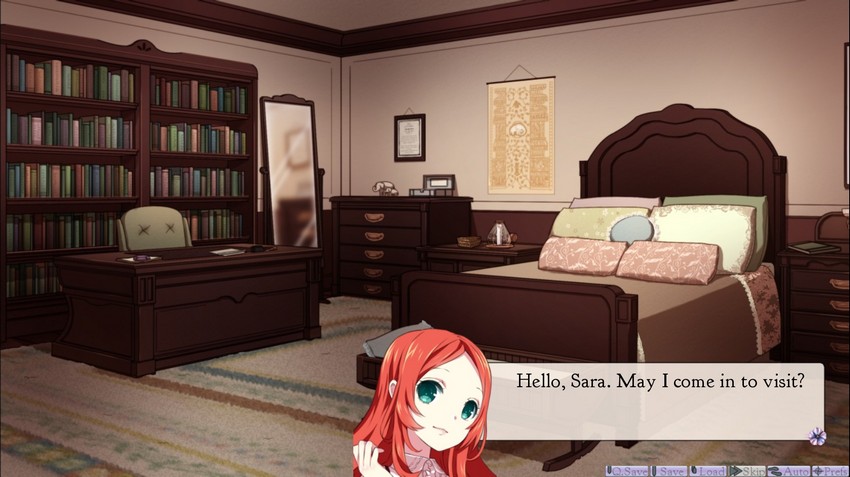
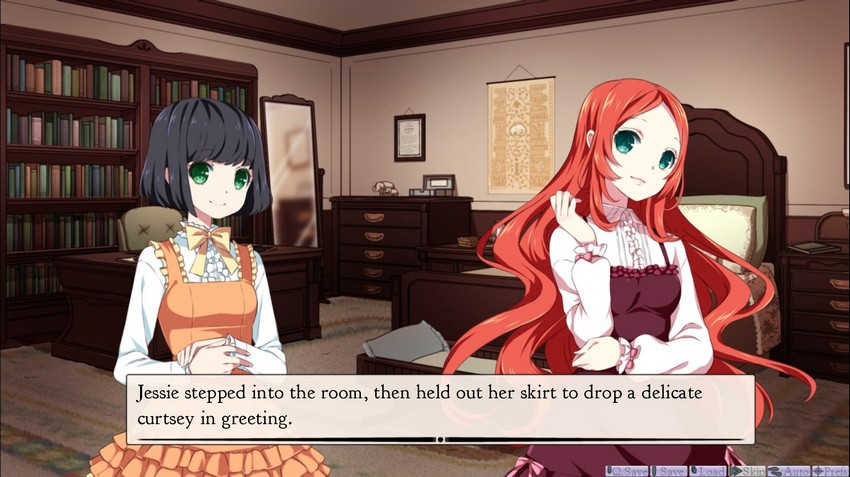
 And without Lavvie listening in.
And without Lavvie listening in. Lavinia? I thought that you and she were the best of friends.
Lavinia? I thought that you and she were the best of friends. Of course we are! I adore her. She's so... classic. So elegant and focused, I admire her very much.
Of course we are! I adore her. She's so... classic. So elegant and focused, I admire her very much. However, sometimes it is nicer to do things for oneself... Are those real silk stockings you're wearing?
However, sometimes it is nicer to do things for oneself... Are those real silk stockings you're wearing?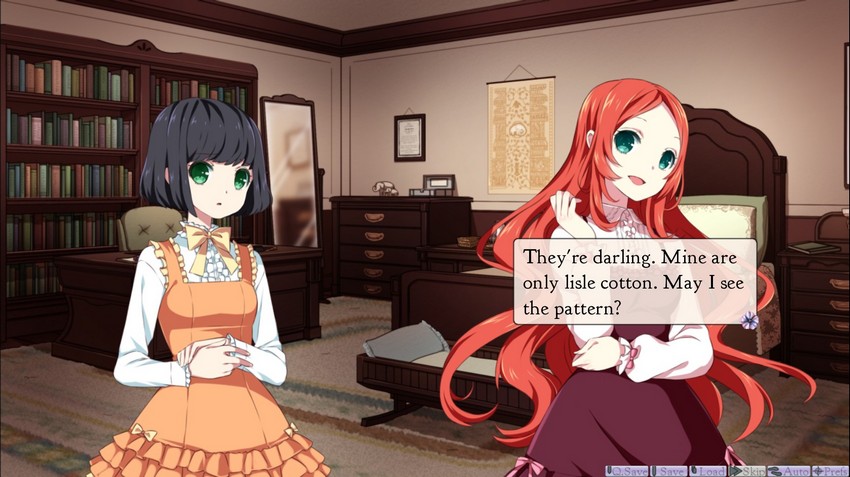
 What little feet you have! I never saw such little feet.
What little feet you have! I never saw such little feet.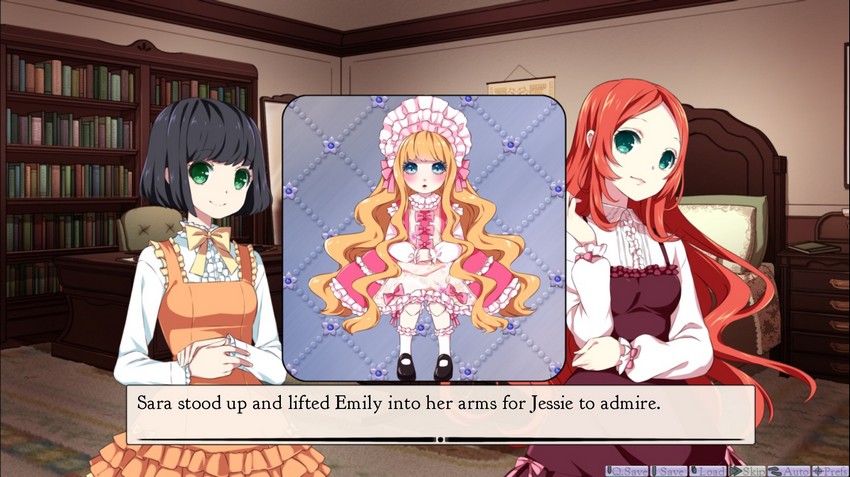
 Can feet be pretty?
Can feet be pretty?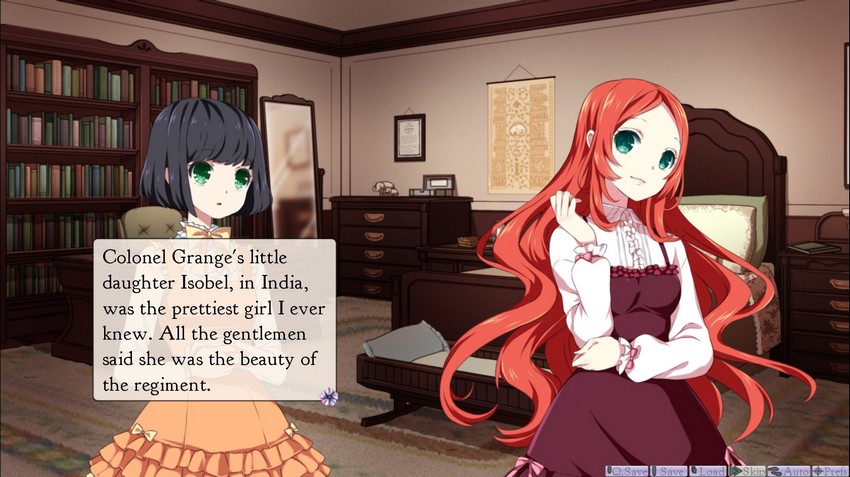
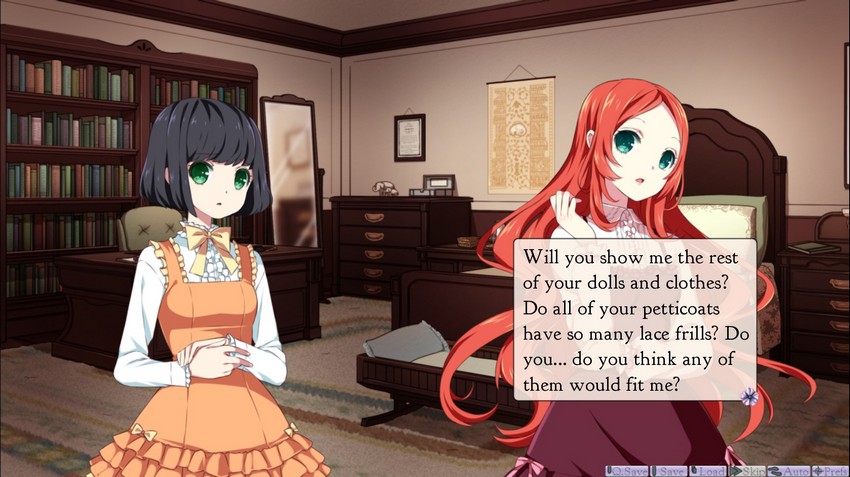

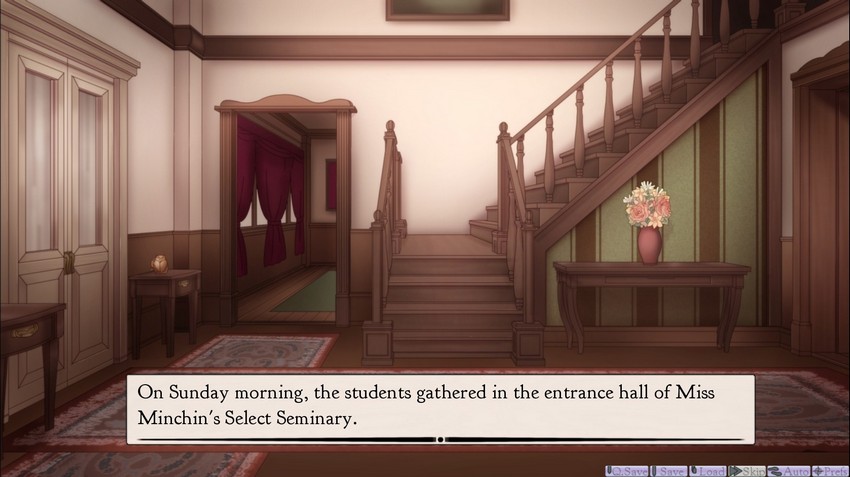
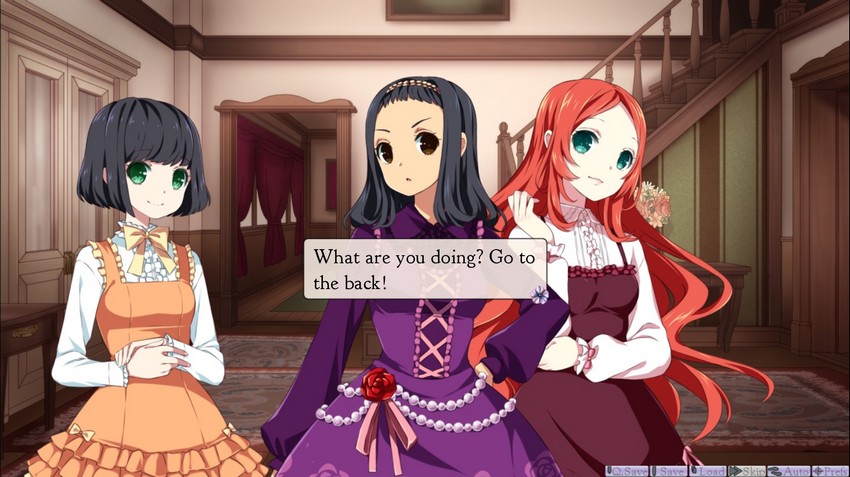
 But that's my place!
But that's my place! You wouldn't want to disobey Miss Minchin, would you?
You wouldn't want to disobey Miss Minchin, would you?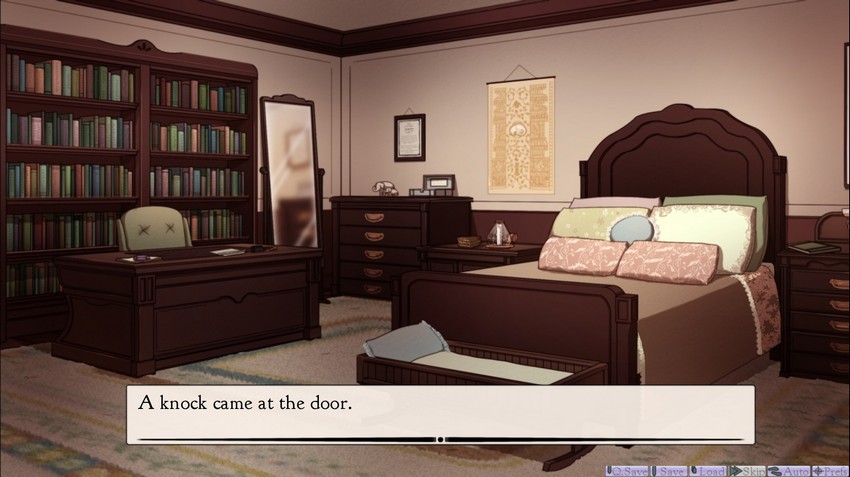
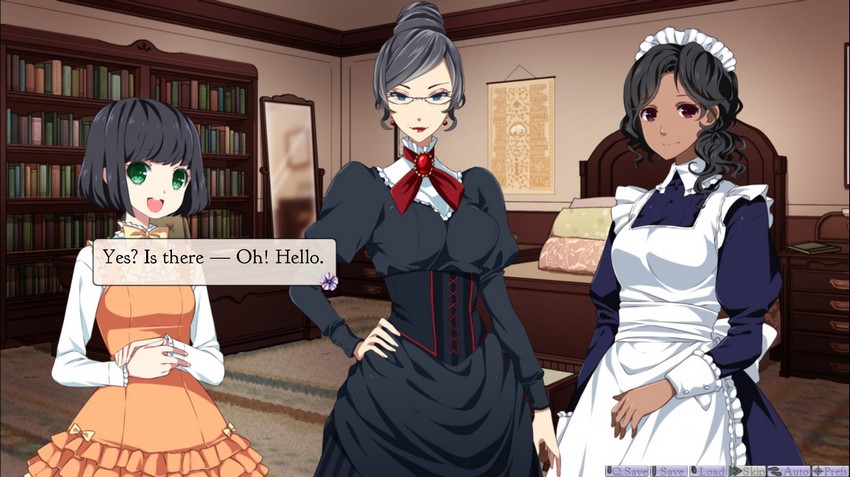
 Bonjour, mademoiselle.
Bonjour, mademoiselle. And don't let her fool you. She does speak the Queen’s tongue.
And don't let her fool you. She does speak the Queen’s tongue.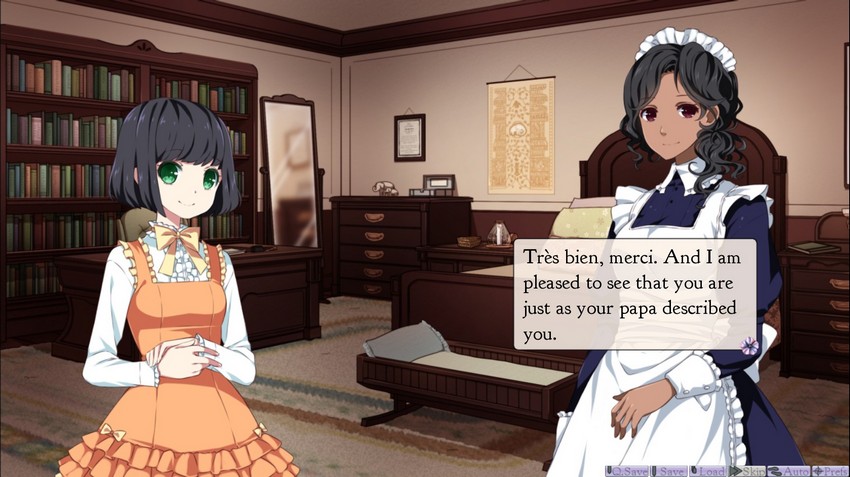
 That no other little girl is as solemn as you, and that you would make me smile.
That no other little girl is as solemn as you, and that you would make me smile.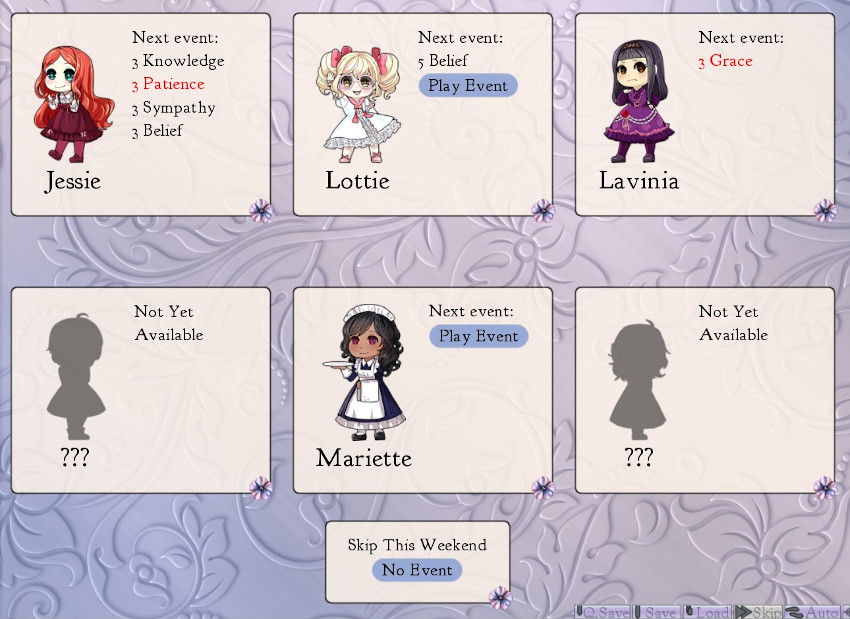
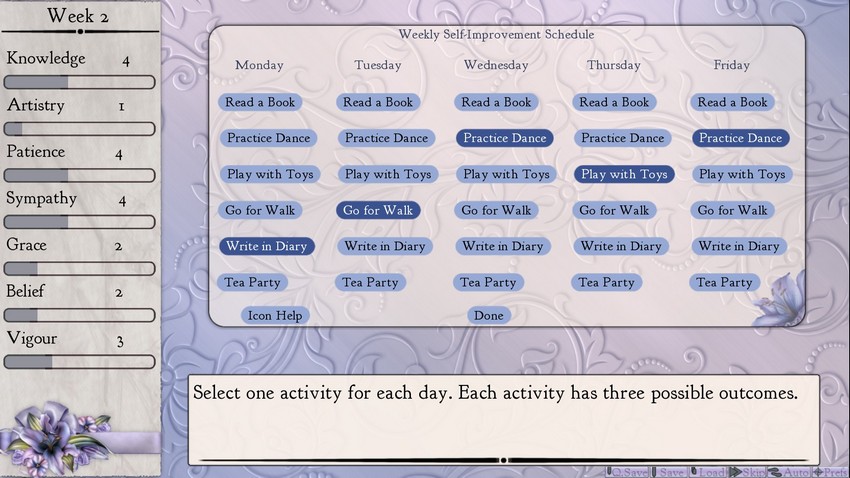
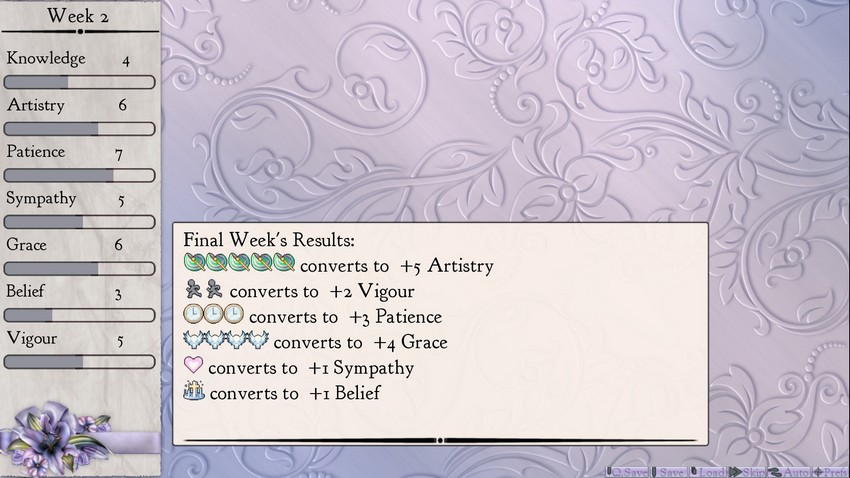
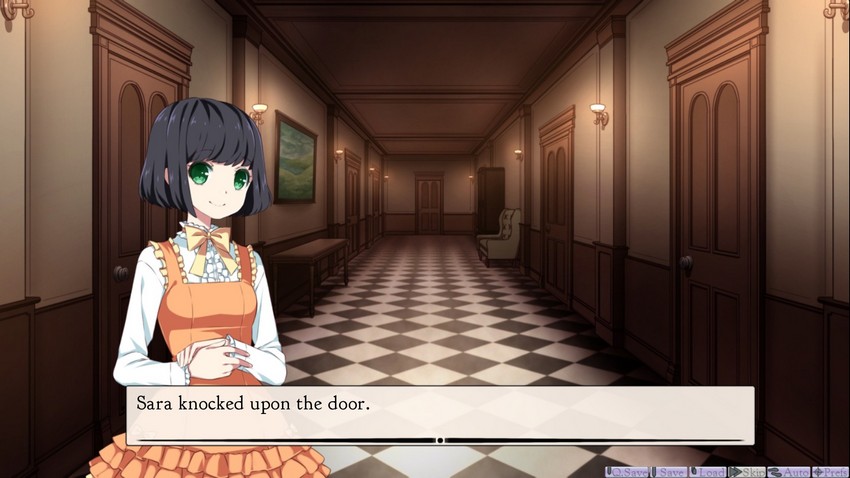
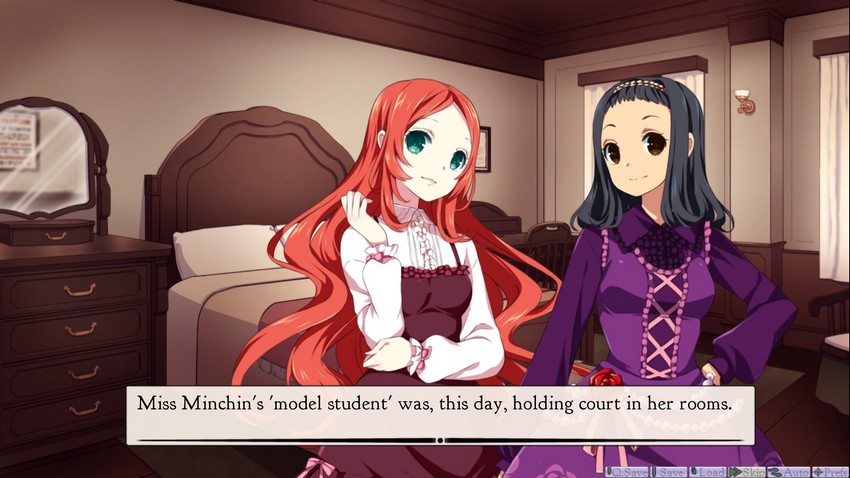
 I beg your pardon?
I beg your pardon? That is not begging.
That is not begging.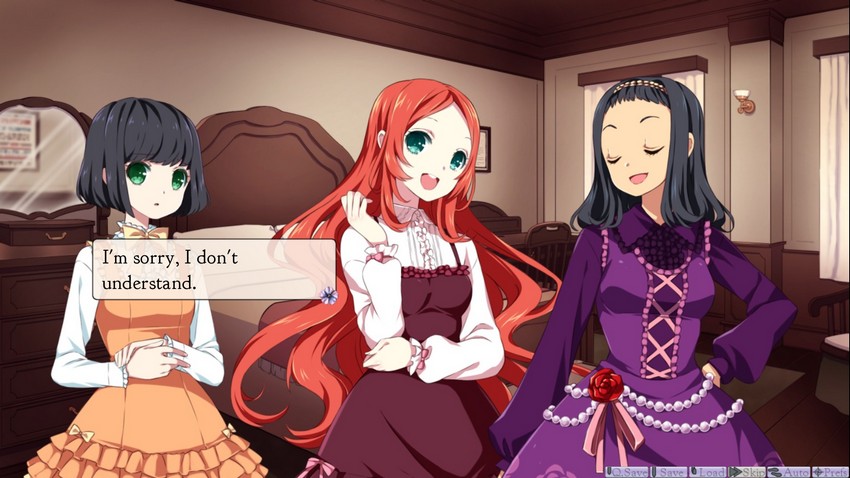
 (How funny, that it should be called a 'pet' name, when it is Jessie who acts more as the 'pet’ to Lavinia.)
(How funny, that it should be called a 'pet' name, when it is Jessie who acts more as the 'pet’ to Lavinia.)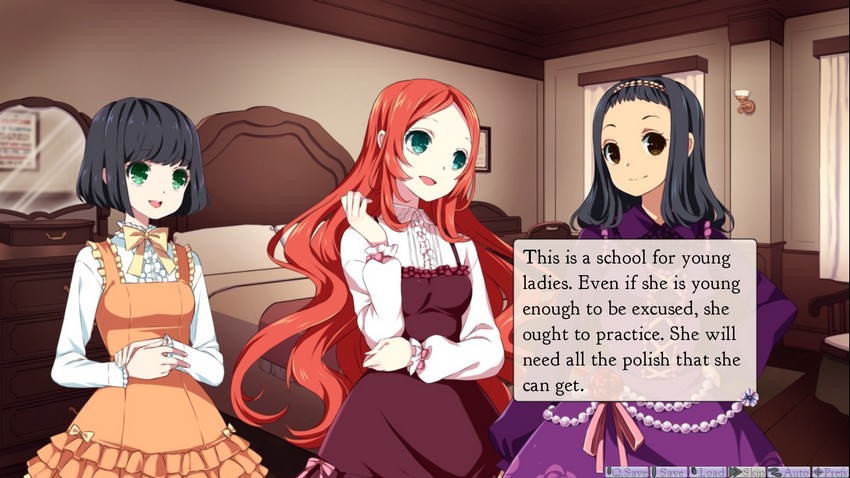
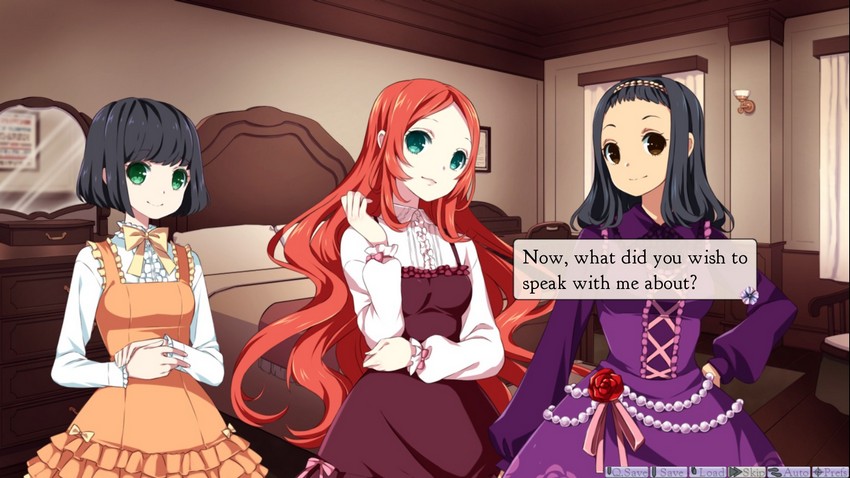
 Miss Minchin said that your father was stationed in India. I was curious where you had lived, whether we might have seen the same —
Miss Minchin said that your father was stationed in India. I was curious where you had lived, whether we might have seen the same — I have no interest in discussing anything whatsoever to do with India. It is not a proper topic for polite conversation.
I have no interest in discussing anything whatsoever to do with India. It is not a proper topic for polite conversation. India is a distant hinterland, filthy and rife with disease. It... it is a jungle, out there.
India is a distant hinterland, filthy and rife with disease. It... it is a jungle, out there.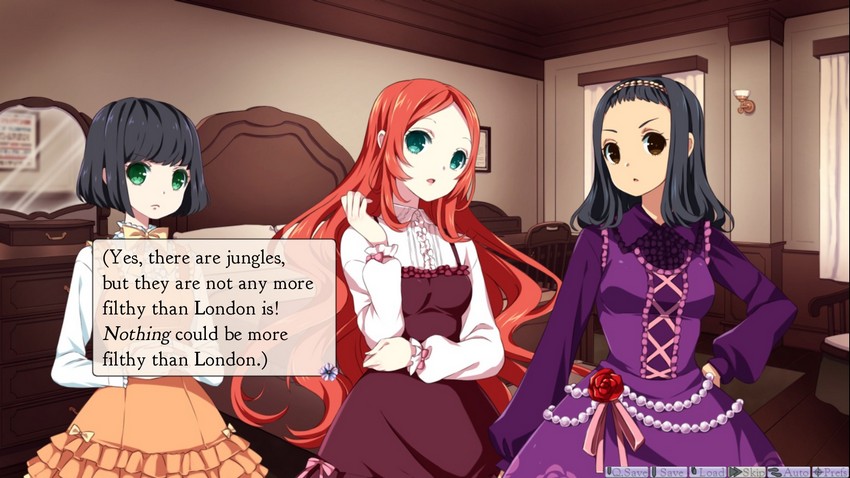
 A proper lady expresses interest in India only to imagine the thrill of being made to briefly visit such a wild and terrible terrain. You should be very glad that you have escaped it.
A proper lady expresses interest in India only to imagine the thrill of being made to briefly visit such a wild and terrible terrain. You should be very glad that you have escaped it. Thrills are exciting.
Thrills are exciting. Hush.
Hush. (I still don't understand why she refuses to speak about India. Wasn't she born there? She must know how lovely it can be...)
(I still don't understand why she refuses to speak about India. Wasn't she born there? She must know how lovely it can be...)
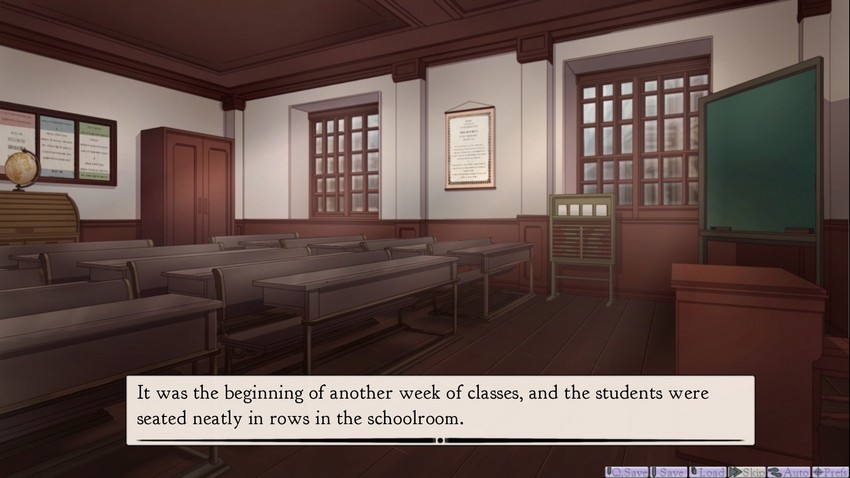
 Now, Sara. As your papa has engaged a French maid for you, I conclude that he wishes you to make a special study of the French language.
Now, Sara. As your papa has engaged a French maid for you, I conclude that he wishes you to make a special study of the French language. Ah — I think he engaged her because he — he thought I would like her, Miss Minchin.
Ah — I think he engaged her because he — he thought I would like her, Miss Minchin. It is a fault in you, and one that we must endeavour to train away.
It is a fault in you, and one that we must endeavour to train away. I...
I... That is quite enough.
That is quite enough. ...
...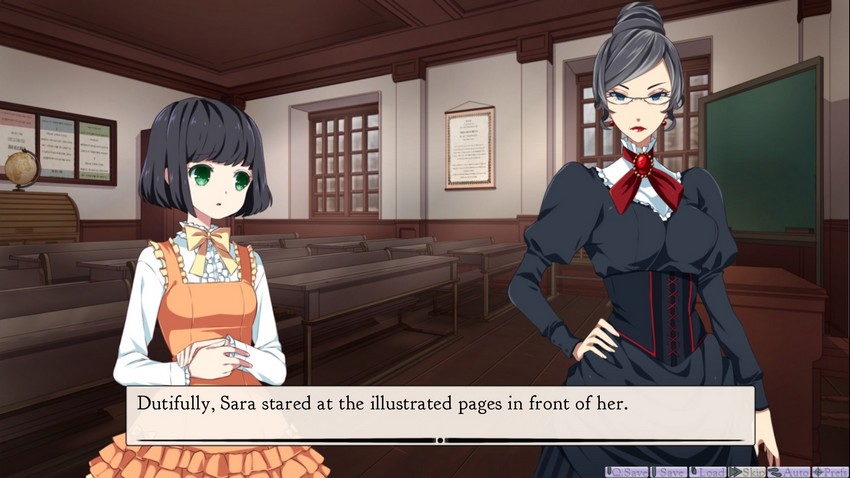
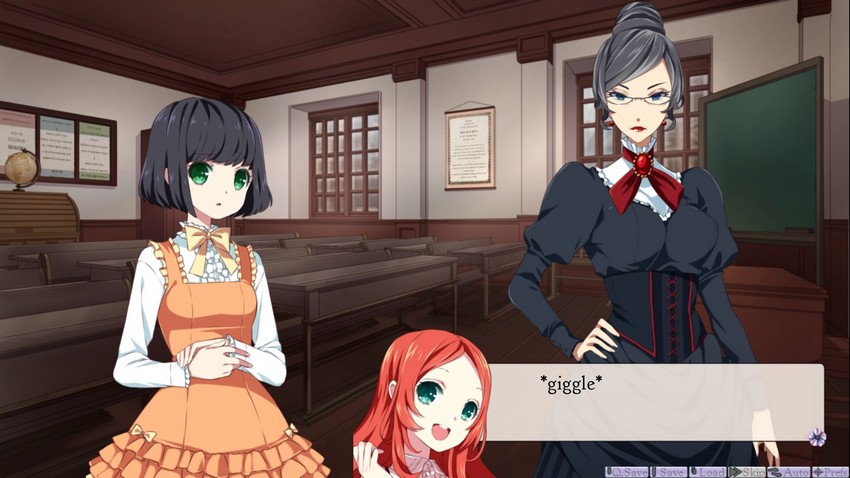
 Yes, Miss Minchin!
Yes, Miss Minchin! Ah! Is this a new pupil for me, madame?
Ah! Is this a new pupil for me, madame?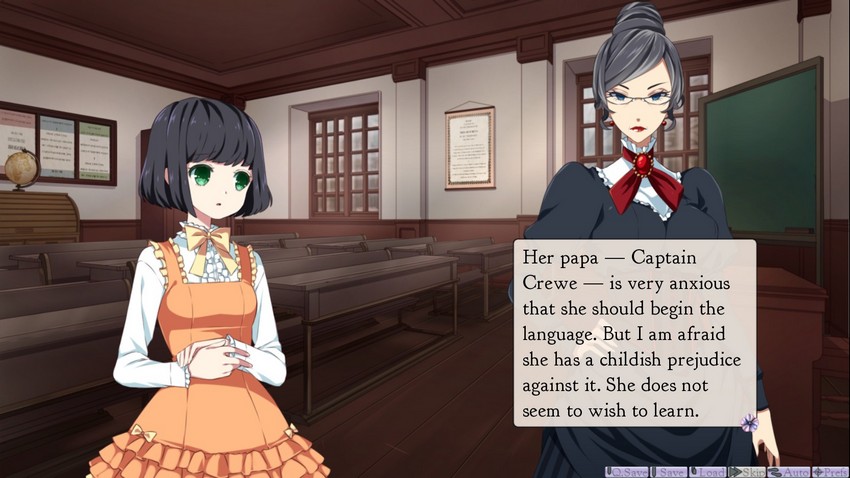
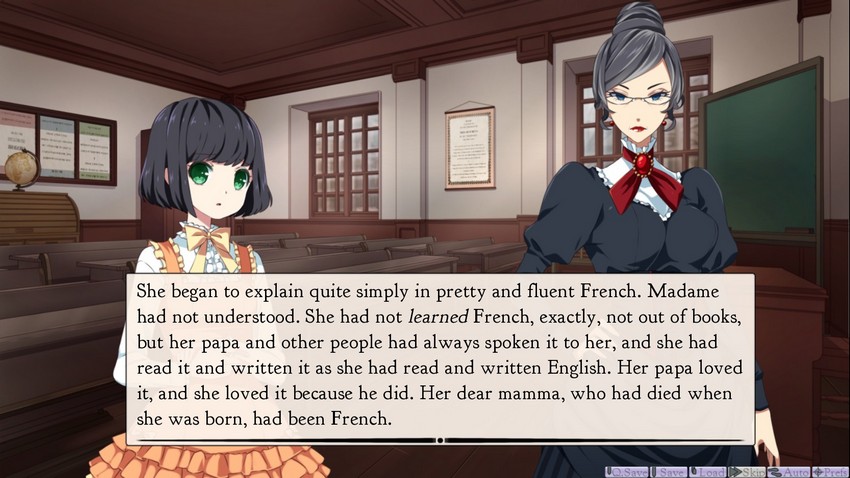
 What — what on earth? What is she saying? Is this some form of joke?
What — what on earth? What is she saying? Is this some form of joke?
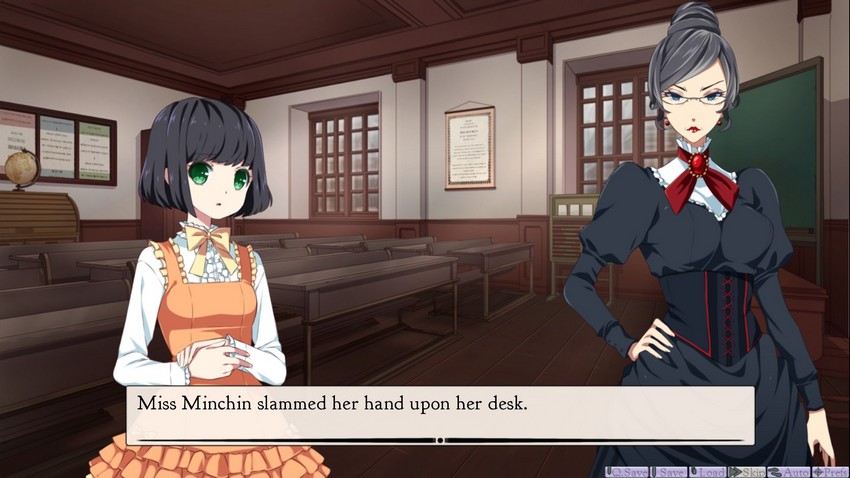
 Silence, young ladies! Silence at once!
Silence, young ladies! Silence at once!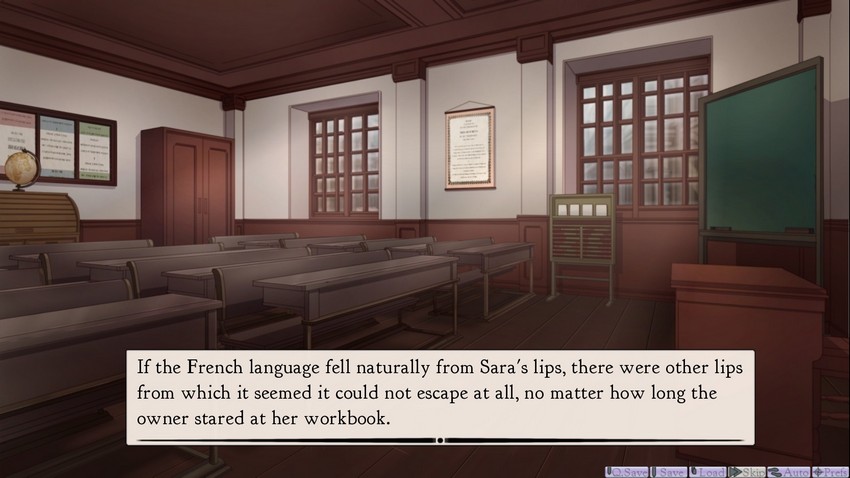
 lee pair... the father... lee, no, lah mare... the mother...
lee pair... the father... lee, no, lah mare... the mother...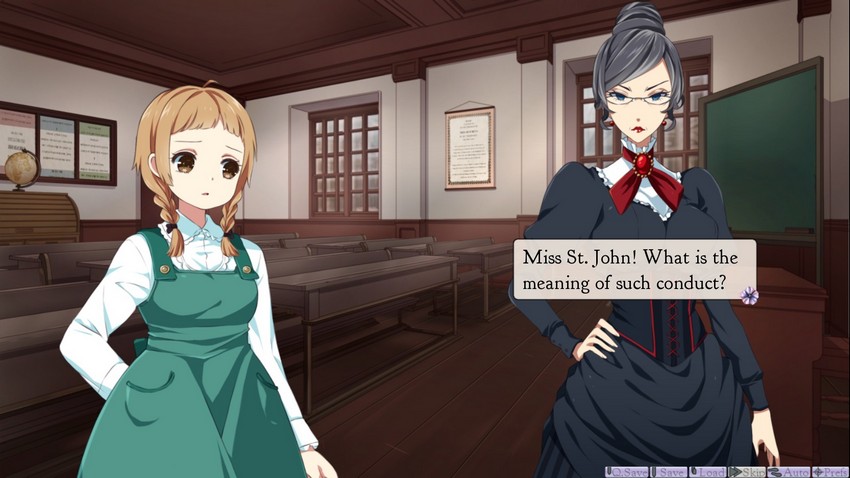
 I — what?
I — what? ...
...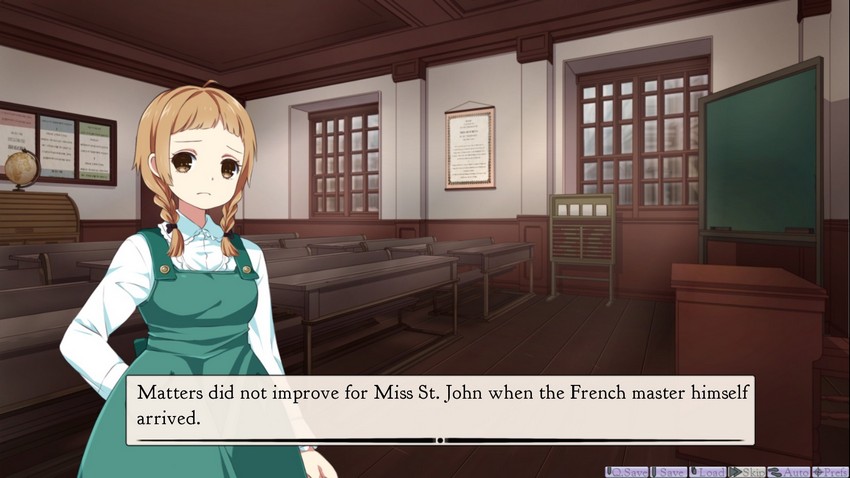
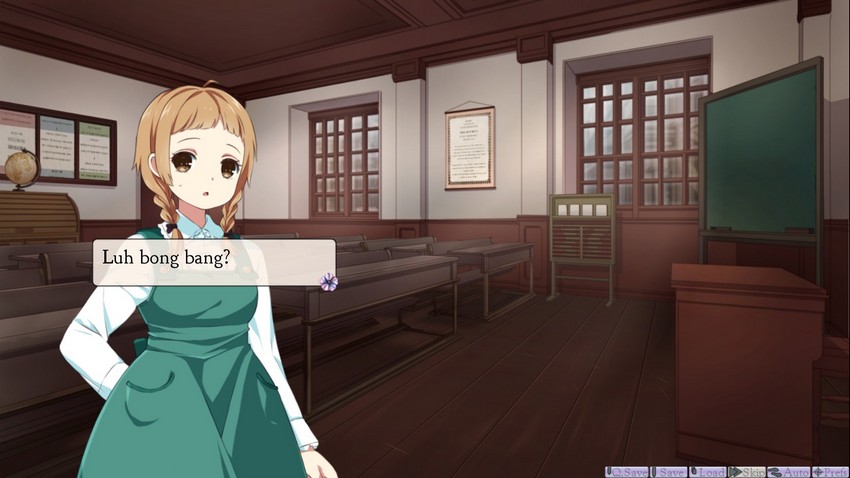
 (It isn’t funny, really. They ought not to laugh.)
(It isn’t funny, really. They ought not to laugh.)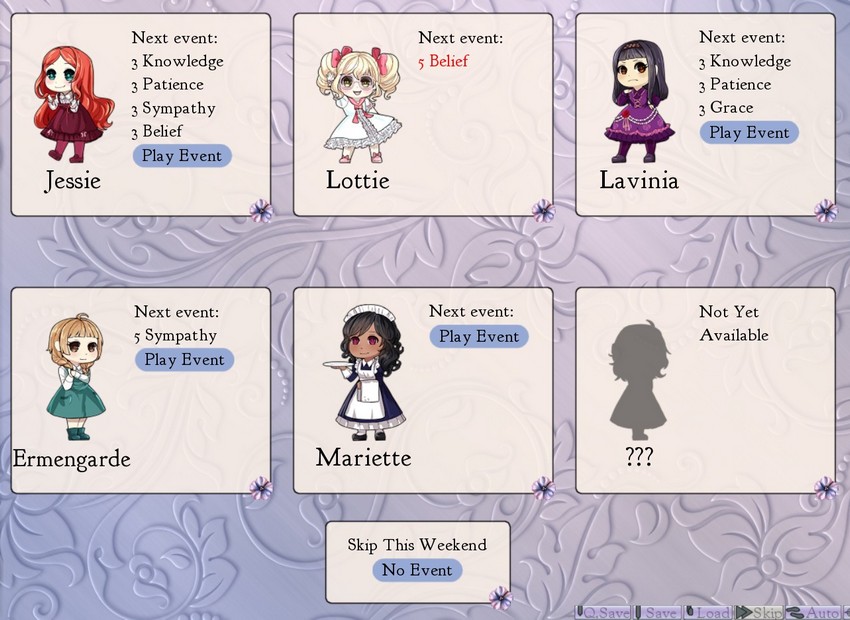
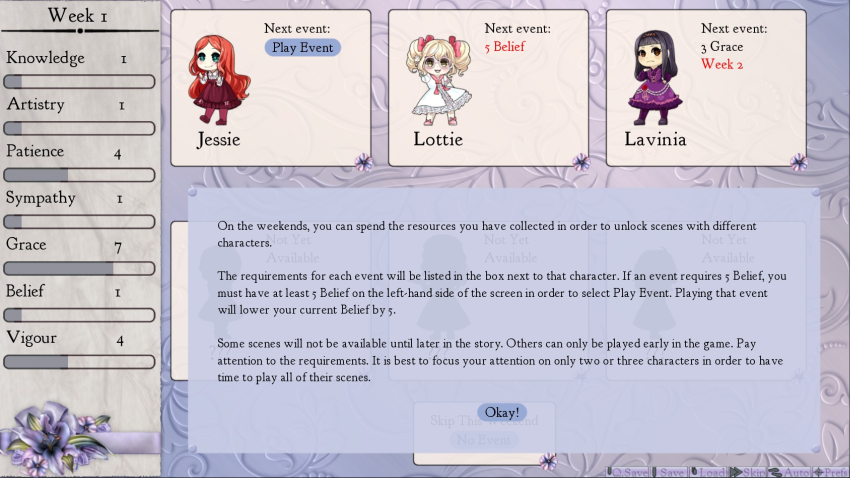
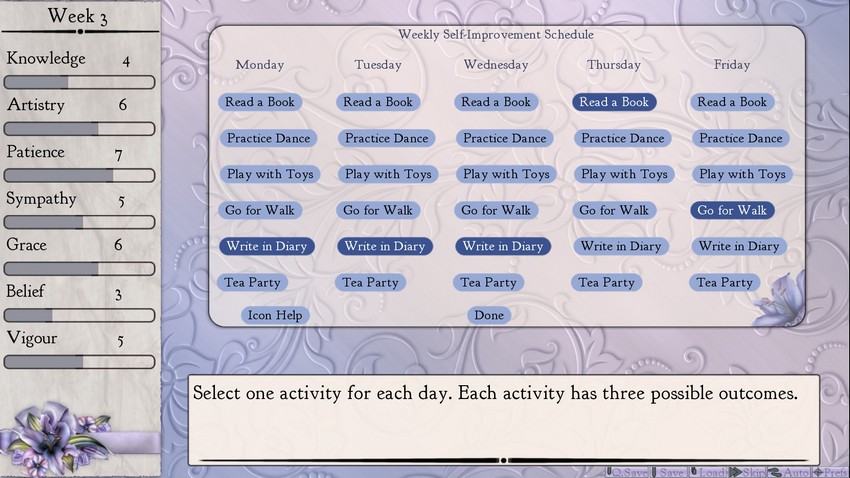
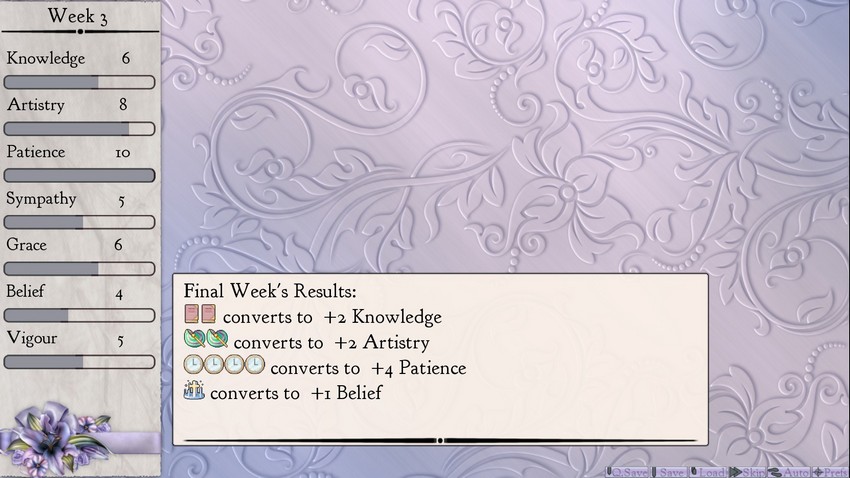
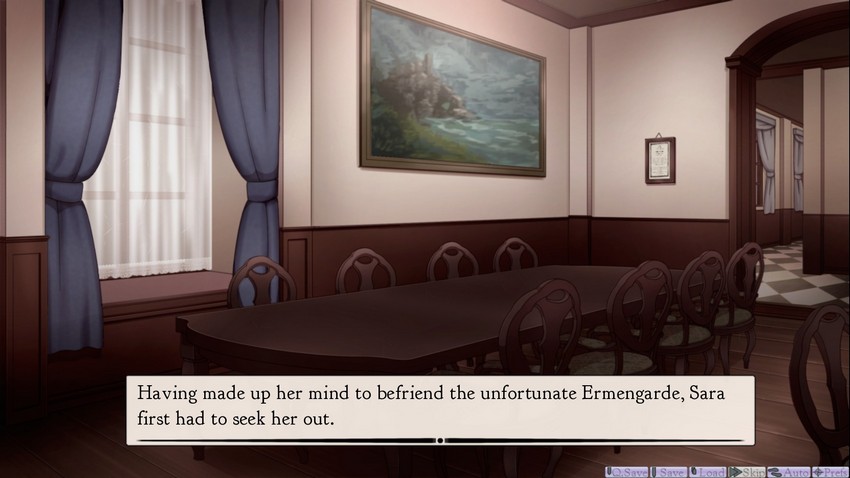
 Mine is Sara Crewe. Yours is very pretty. It sounds like a story book.
Mine is Sara Crewe. Yours is very pretty. It sounds like a story book. Do — do you like it?
Do — do you like it?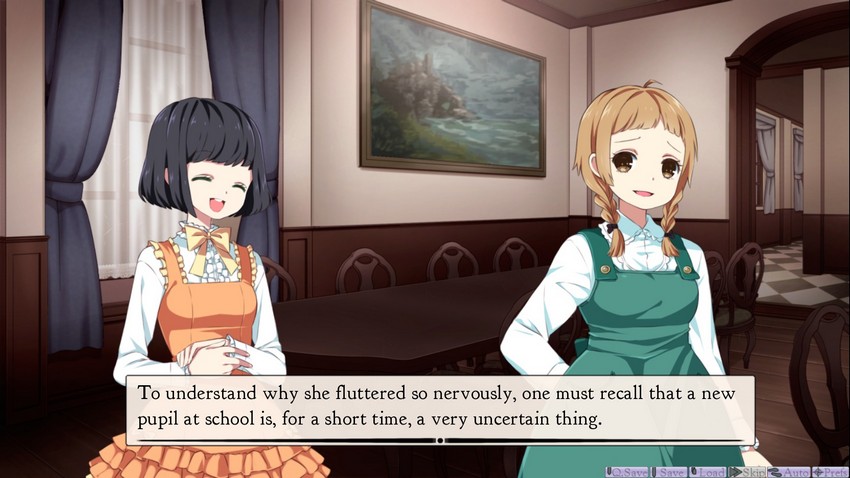
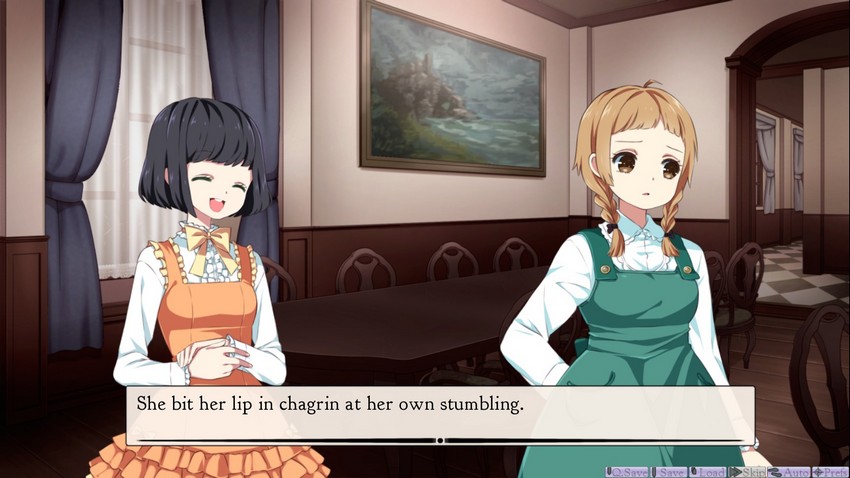
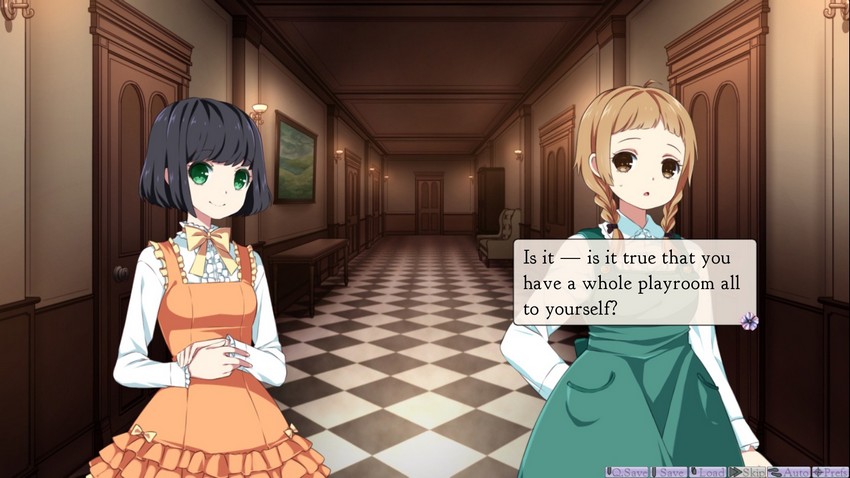
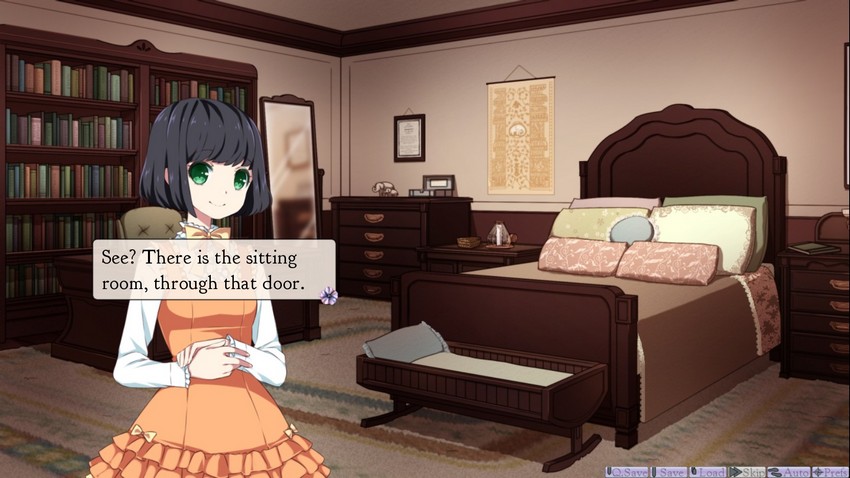
 Oh! It's beautiful.
Oh! It's beautiful. Sometimes, when I am playing, I make up stories about the things that I am doing and tell them to myself, and I don't like people to hear me. It spoils it if I think people might listen.
Sometimes, when I am playing, I make up stories about the things that I am doing and tell them to myself, and I don't like people to hear me. It spoils it if I think people might listen.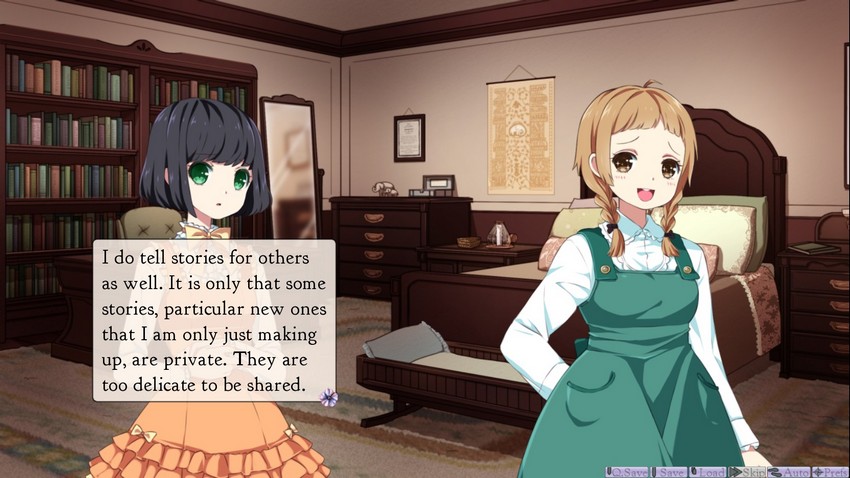
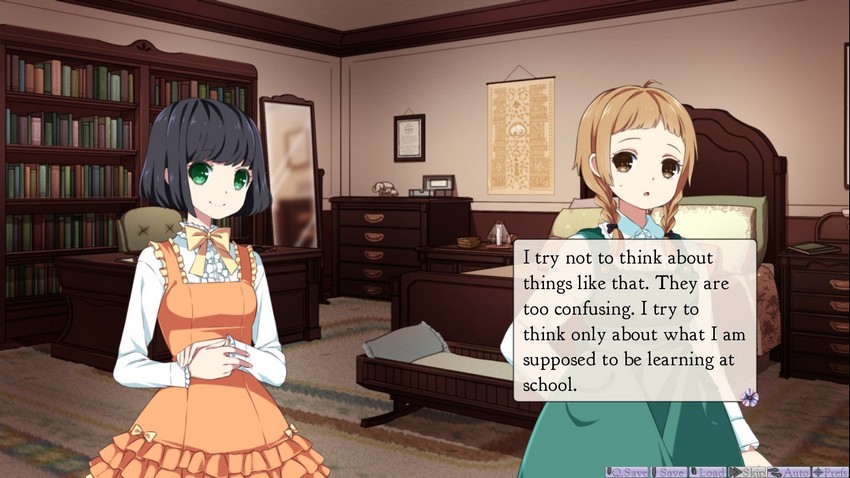
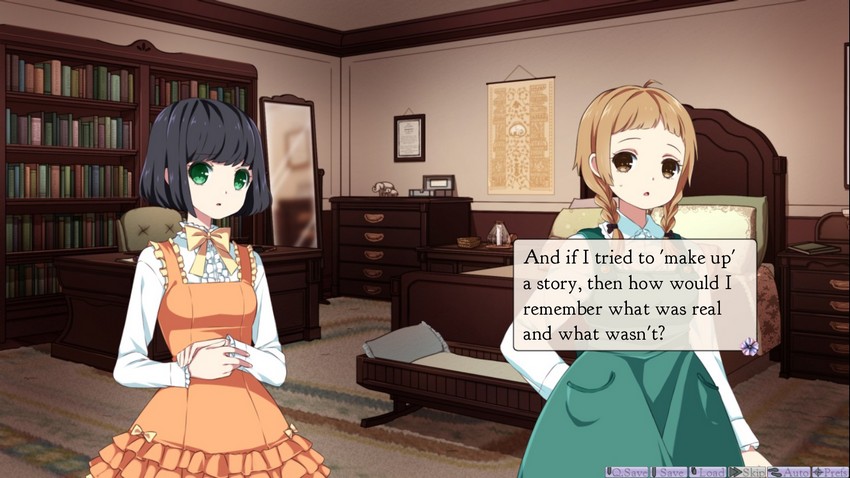
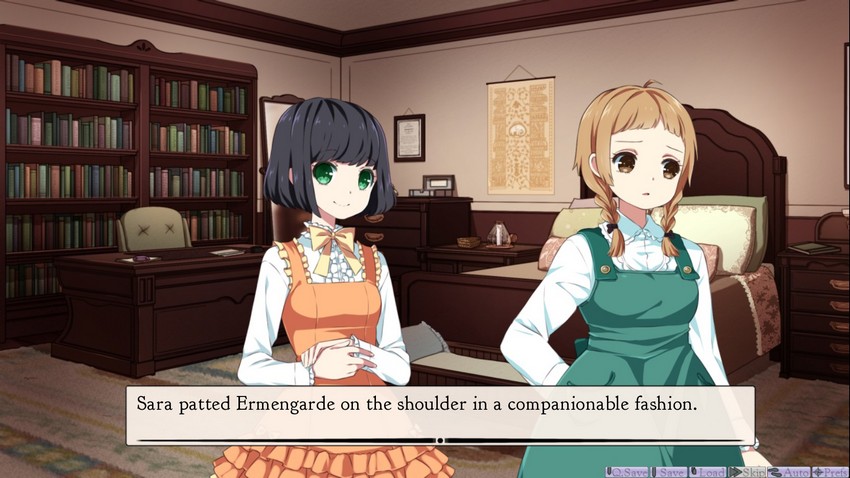
 Oh! I have an idea. Perhaps if I read them to you, then you would not get them confused with other books?
Oh! I have an idea. Perhaps if I read them to you, then you would not get them confused with other books? Good.
Good.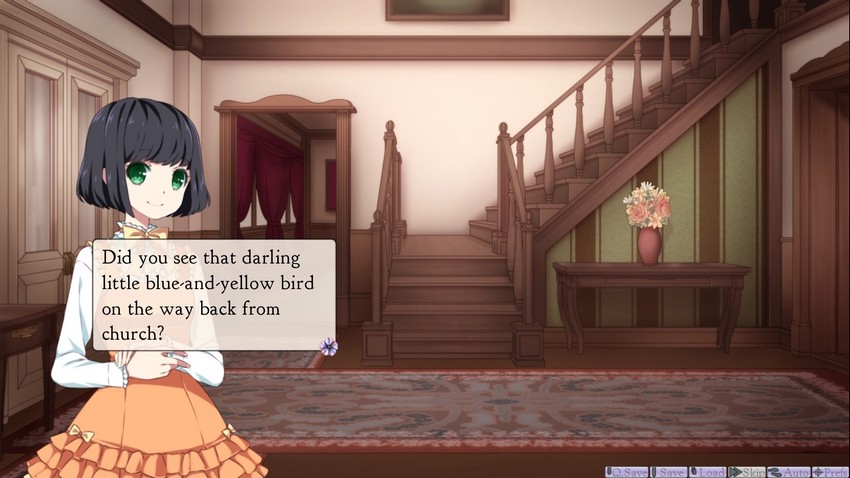
 They're — They're country birds. They like trees. You don't see them so much in London.
They're — They're country birds. They like trees. You don't see them so much in London. I don't think so. Are there blue birds in India?
I don't think so. Are there blue birds in India? Well, there are some birds with bright blue feathers, but not all over, and some birds that are blue all over, but only a bit blue. I thought that perhaps in England I might find the Bluebird of Happiness.
Well, there are some birds with bright blue feathers, but not all over, and some birds that are blue all over, but only a bit blue. I thought that perhaps in England I might find the Bluebird of Happiness.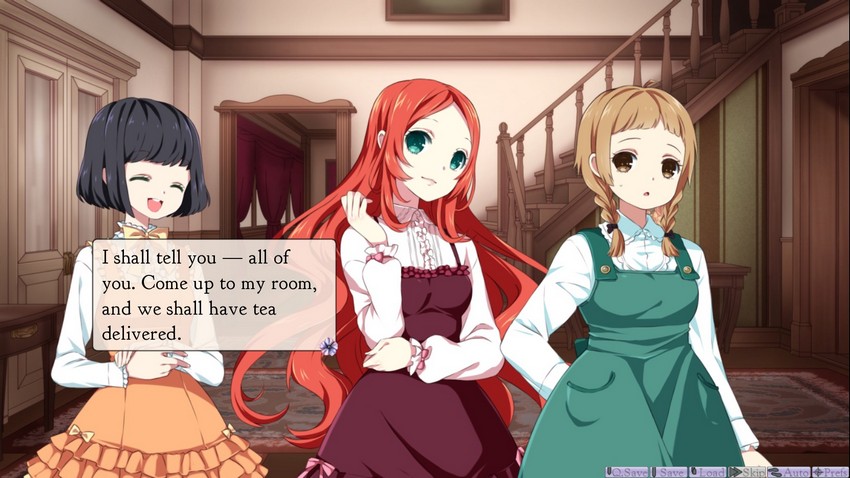
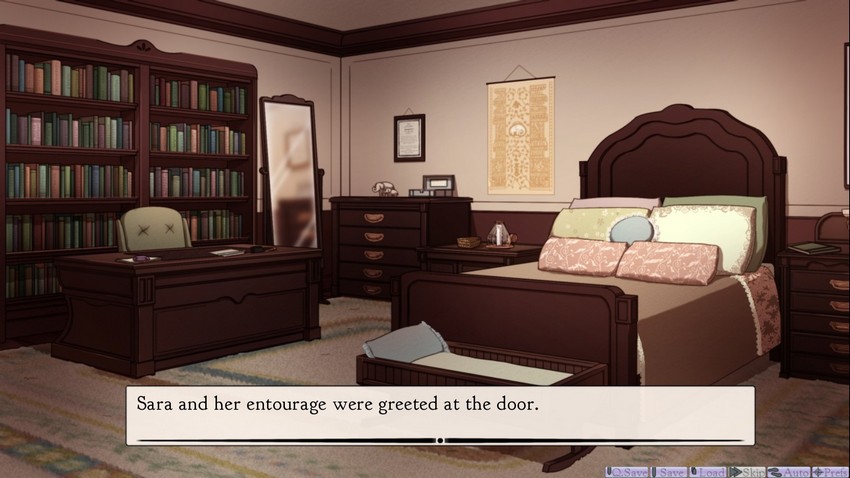
 Oh, my. So many visitors.
Oh, my. So many visitors. Oui, mademoiselle.
Oui, mademoiselle.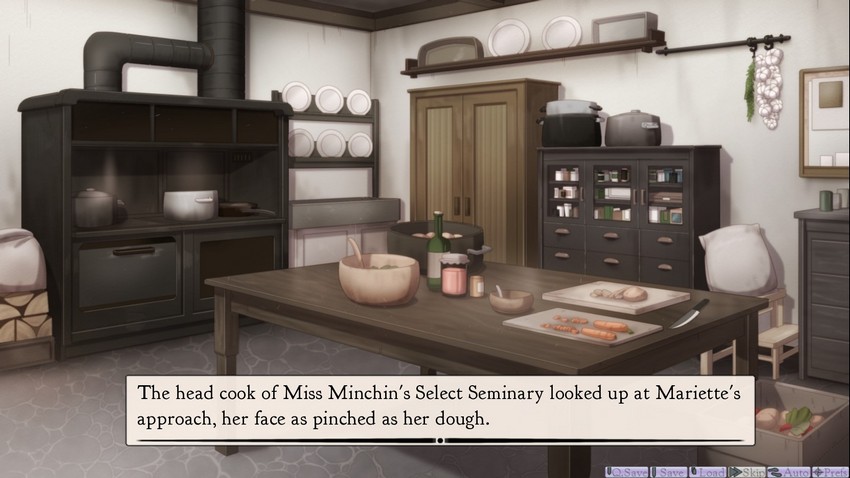
 Here, now, what's this, then?
Here, now, what's this, then?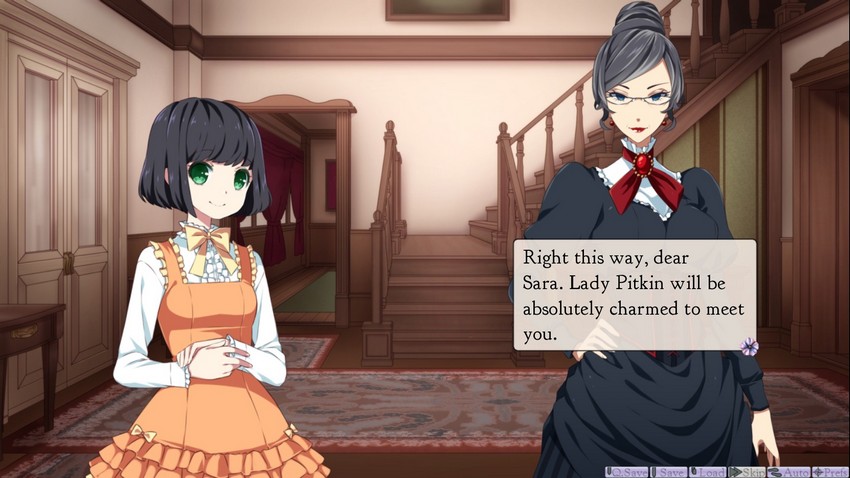
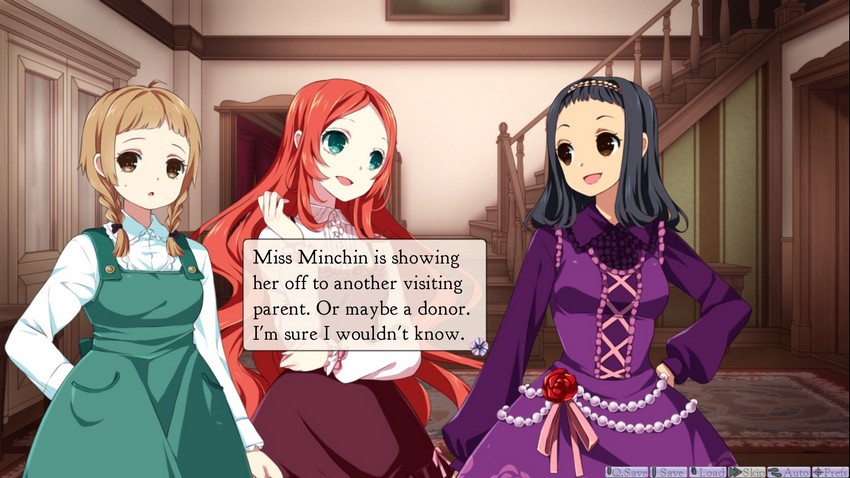
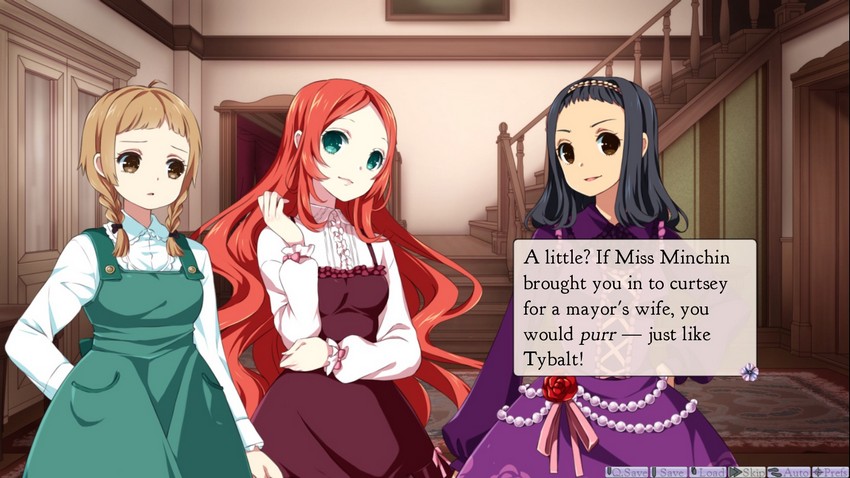
 Oh, Lavvie, don't be silly!
Oh, Lavvie, don't be silly! And every bit as likely, for you!
And every bit as likely, for you!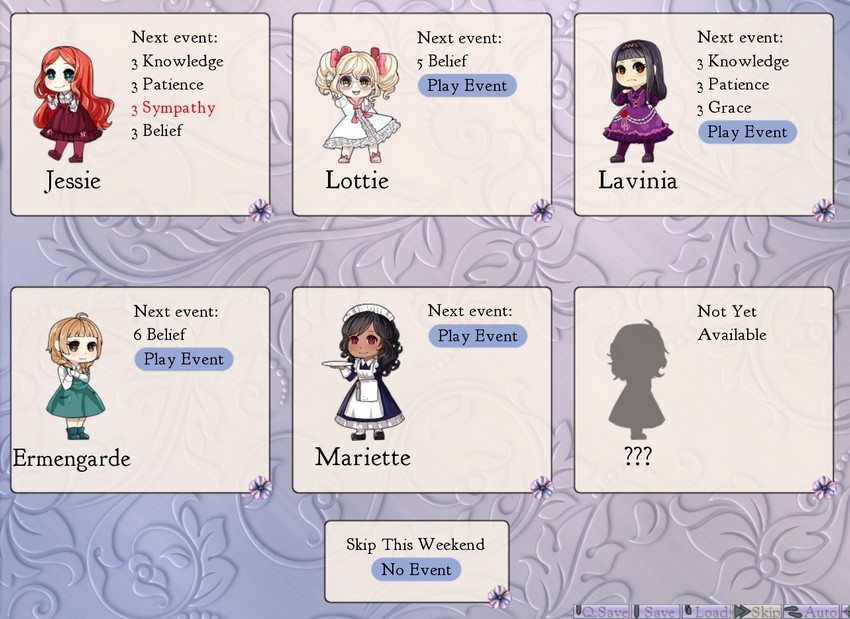




 When I hear stories in your voice, I can almost see them happen. You are much better than books.
When I hear stories in your voice, I can almost see them happen. You are much better than books.

 He is always in the library— reading things.
He is always in the library— reading things.
 Papa is a soldier, and think of what soldiers bear! If there was a war he would have to bear marching and thirstiness and, perhaps, deep wounds. And he would never say a word — not one word.
Papa is a soldier, and think of what soldiers bear! If there was a war he would have to bear marching and thirstiness and, perhaps, deep wounds. And he would never say a word — not one word.



 Generosity is a virtue, but it is not wise or safe to come in close contact with creatures of the streets. You must be careful to clean yourself thoroughly when we return to the school.
Generosity is a virtue, but it is not wise or safe to come in close contact with creatures of the streets. You must be careful to clean yourself thoroughly when we return to the school.

 I want to hold the kitty.
I want to hold the kitty.

 Dear me, how we can calculate!
Dear me, how we can calculate!
